Refugees: Innovation, Self-Reliance & Empowerment (RISE) Programme
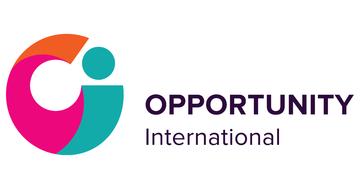
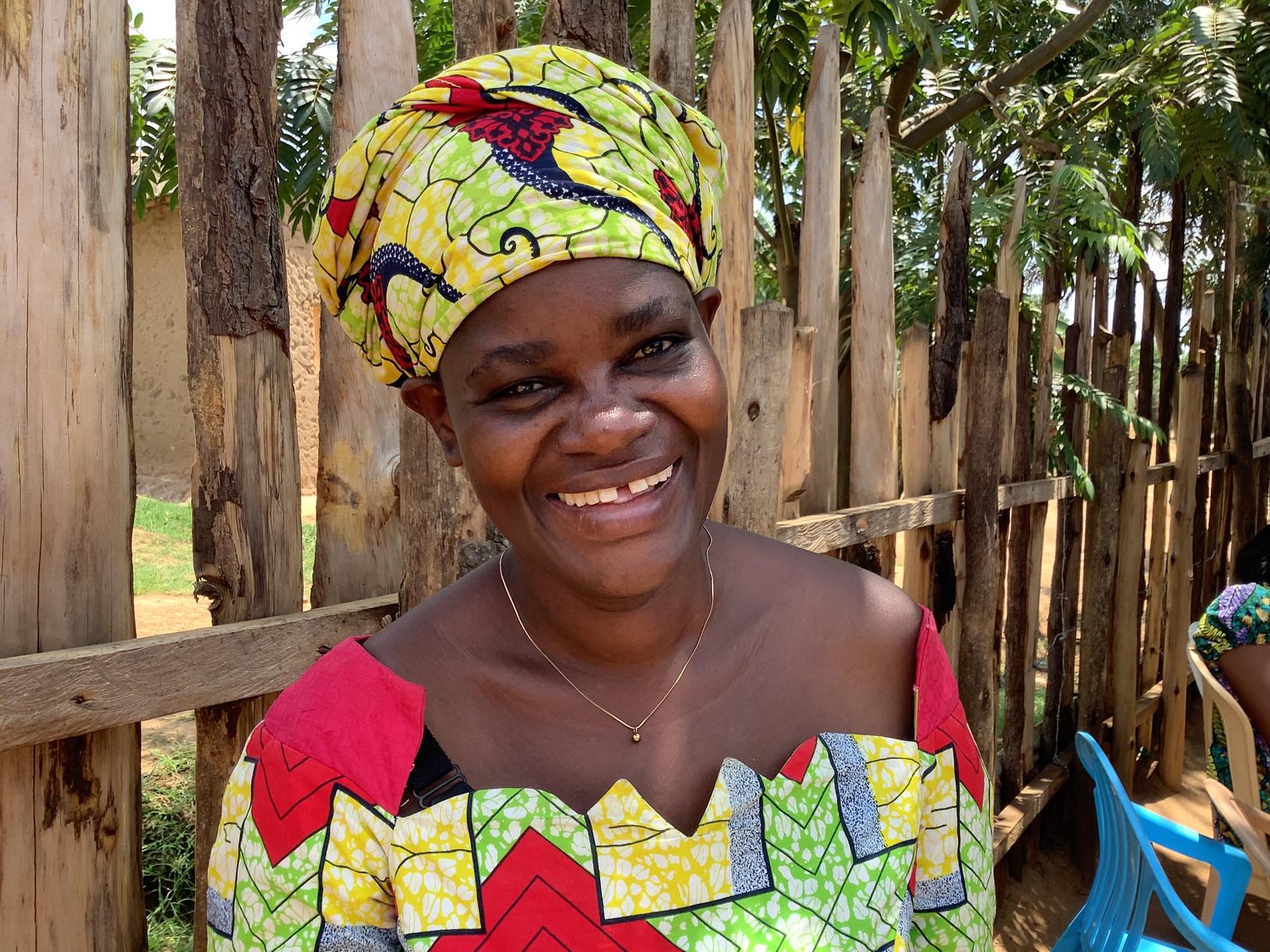
Participatory Video & Most Significant Change Midline Evaluation
Report: Nakivale, Uganda, October 2022
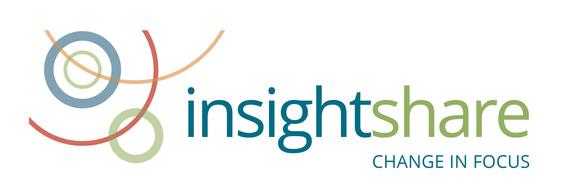
Opportunity International UK
Participatory Video and the Most Significant Change
Midline Evaluation Report October 2022
Refugees: Innovation, Self-Reliance & Empowerment (RISE)
Author: Tricia Jenkins
Edited by: Soledad Muñiz
Contributions by: Scola Kukutia
Design: Tricia Jenkins
Partners
Opportunity International UK
Mandy Burrows Senior Programme Manager aburrows@opportunity.org
Noah Ssempijja Refugee Programme Coordinator nssempijja@opportunity org
InsightShare, UK
Soledad Muñiz
Director of Programmes
Project Management and Design s,uniz@insightshare org
Tricia Jenkins
Lead Facilitator and Editor
tjenkins@insightshare.org
InsightShare, Kenya
Scolastica Kukutia
Assistant Facilitator
Cover photo: Irene Ndusi - Family Savings Group, Nakivale, October 2022
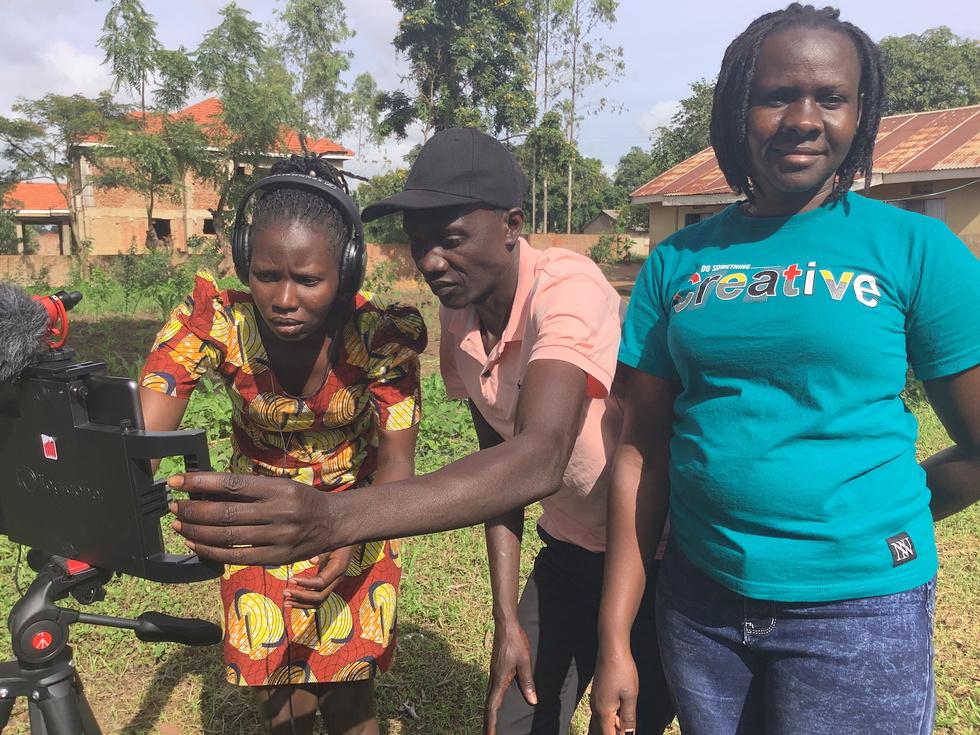
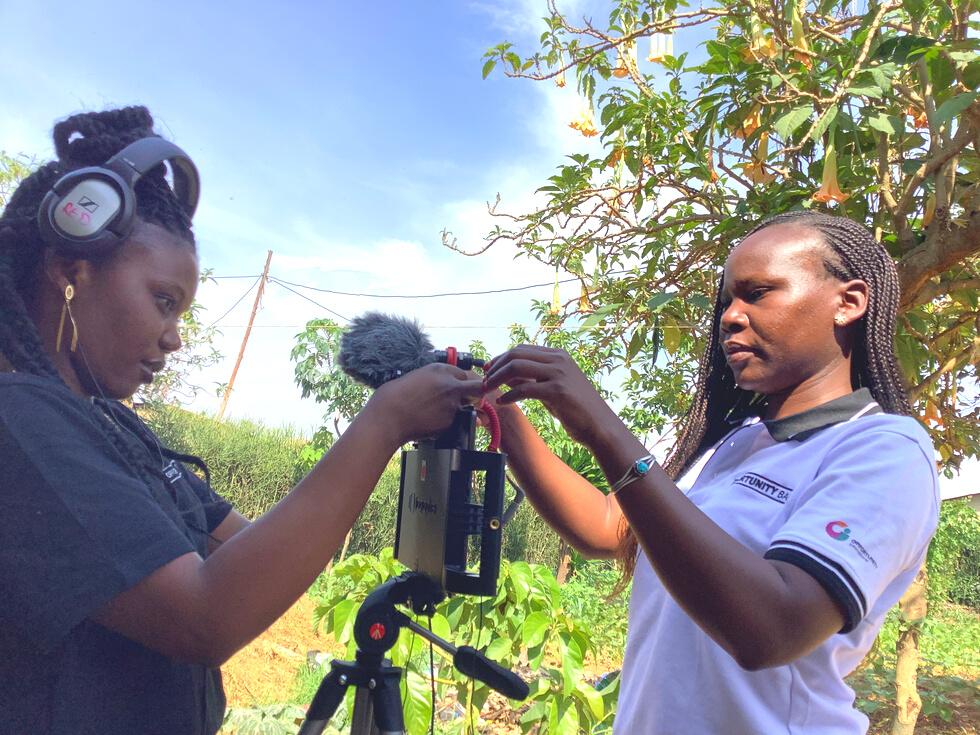
01 Project Background 21 Participatory Analysis 04 Background to the methodology 32 Recommendations 07 RISE PV MSC Midline Evaluation 35 Feedback from the trainees 16 The filmed stories 37 Sources and Appendices Table
Contents
of
Photo:Alice and Naomi preparing to film on Field Day Three in Umoja ni Nguvu Wakulima, Nakivale
Background
Since 2016, Uganda has seen a significant influx of refugees As of June 2022, Uganda hosted over 1.5 million refugees. Around 60% came from neighbouring South Sudan. The Democratic Republic of the Congo is ranked as the second leading origin of refugees living in Uganda, with approximately 440,400 Congolese citizens having searched for asylum in Uganda so far. Uganda houses the highest number of individuals forcibly displaced in Africa as well as some of the largest refugee populations worldwide (Source: Statistica, 2023).
Poverty is widespread in Uganda, with over 27% of the population being multidimensionally poor (Multidimensional Poverty Index Report 2022 - Uganda). According to UNHCR, at least 80% of refugees in Uganda live below the international poverty line (Comprehensive Refugee Response Framework - CRRP, 2019 - 20). CRRP cites high dependency rates in Nakivale (67%) noting that refugees may become dependent upon humanitarian assistance if interventions do not focus on resilient livelihoods. Both refugee and host communities struggle to sustain livelihoods due to limited access to capital and productive assets and lack of vocational training (UNHCR RRM, June 2018)
RISE addresses challenges preventing refugees from developing resilient livelihoods.
Reliance on cash
Lack of traceability
Lack of access to finance
Lack of Financial capability
Limited livelihood opportunities
Physical cash poses a high risk of theft/loss and is likely to be used rapidly by recipients.
Need for increased transparency of cash payments, especially due to recent corruption scandals regarding refugee registration.
There are few financial institutions in settlements. Refugees' status, lack of assets and social capital prevent them accessing capital and starting businesses.
Most refugees had little access to or have knowledge of formal financial services
Refugees are isolated from local markets by poor infrastructure and fall prey to distorted prices and cannot easily access buyers
Lack of empowerment
This limits particularly women refugees' ablity to make informed decisions, particularly regarding finances and this hampers their ability to transition from dependency to self reliance (DCED, 2019).
Source: RISE Baseline Study/FSDU (2018)
1
ThisreportsharesthelearningfromthePVMSCmidlineevaluationoftheRISEproject, followingthebaselinestudythatwascarriedoutinMarch2020,butcurtailedowingto theglobalpandemicinternationallock-downsthatcommencedmid/endMarch2020. Theanalysisthatwascarriedoutofthedatathatwasabletobegatheredfellintotwo mainsets:
datarelatingtopersonalissuesandcommunitysourcedfromfielddays,scribe notesandinsightsgatheredbytheevaluationteam datarelatingtosystemsandinstitutionsoperatinginNakivaleRefugee Settlement,focusingonDrivers/SupportersandBarriers/Blockers personalinsightsofthetraineesfromthefielddays
ThefollowingsummaryoffindingsfromthePVbaselineanalysisprovidesapointfrom whichtotracktheprogressoftheprojectasitunfoldedbetween2020and2022, althoughclearlytheimpactofthepandemicelongatedtheprocessandcaused significantadditionalshortandlongtermproblemsthatwerenotanticipatedwhenthe projectwasincepted.
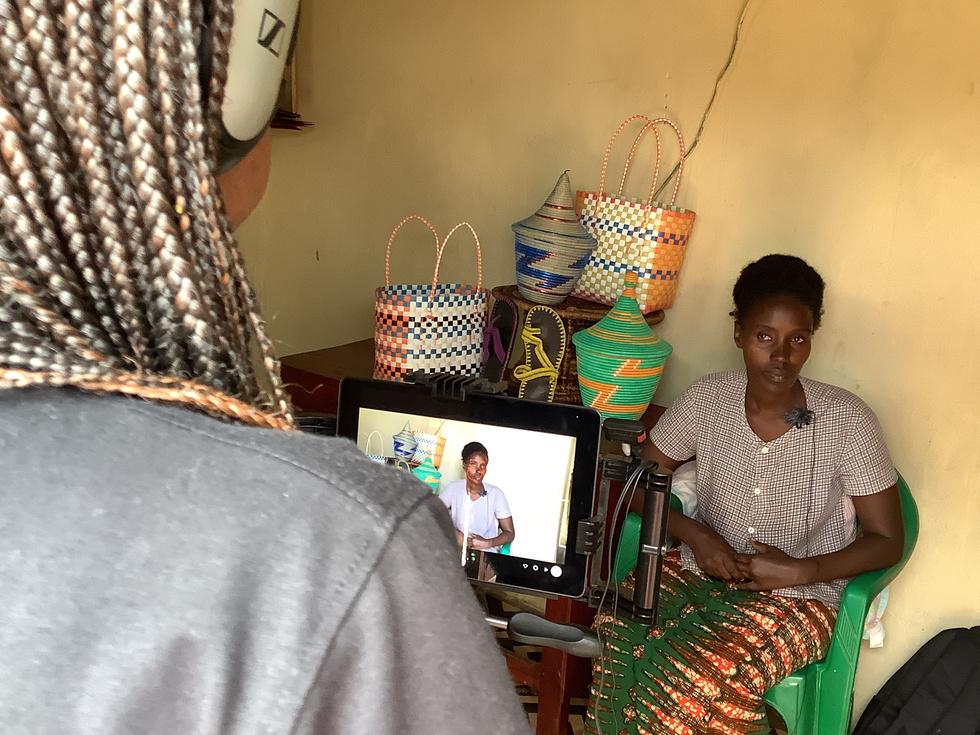
2
Recording the tesimony of Immaculate Nanziza, Wenzetu, Nakivale, October 12, 2022
Findings from the PV baseline report: 11 key focus points
The following key focus points emerged from the baseline, forming the basis of early recommendations to improve conditions for refugees that are necessary for them not only to have a better quality of life, but also develop sustainable enterprises to redress poverty and exclusion.
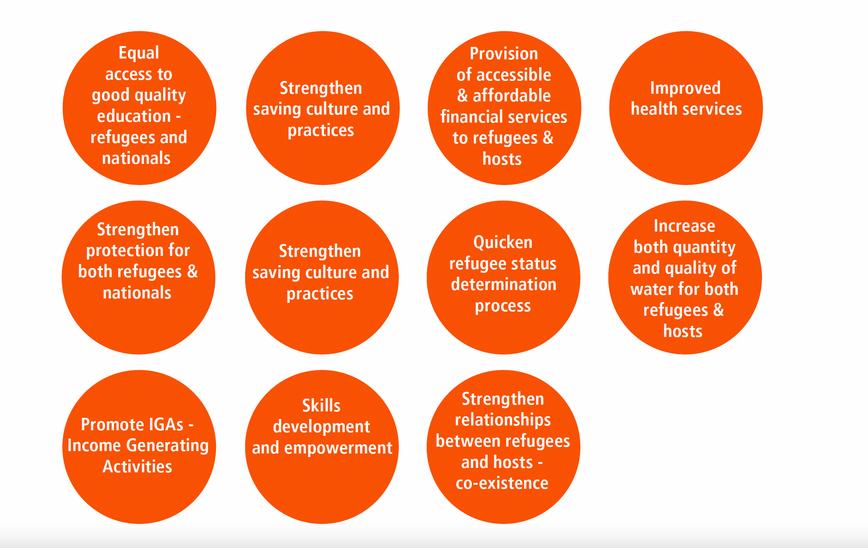
Source: RISE PV Baseline Report p20
Thefullplaylistandvideosummaryofthebaselinestudycanbeseenhere. Thefull baselinereportcanbedownloadedhereandincludesafullexplanationofthe participatorymonitoringandevaluationmethodologyemployedatthisstageofthe project.
3
Midline Evaluation: Participatory Video and Most Significant Change
Background to the methodology
What is Participatory Monitoring and Evaluation?
The process of monitoring and evaluating generally serves two main purposes: to improve the delivery and impact of programmes, and to promote accountability by learning from past successes and mistakes. Participatory monitoring and evaluation recognises that to obtain information and learning that truly reflects programme impact, the people who have had first-hand experiences of the programme must play a central role in the process, define their own measures of success, and assess whether a programme responds appropriately to the real life aspirations of the community Consequently, using participatory methodologies can promote a positive cycle of sharing, learning, reflecting, and transforming. “Participatory monitoring and evaluation involves the assessment of change through processes that involve many people or groups, each of whom is affecting or affected by the impacts being assessed. Negotiation leads to agreement on how progress should be measured and the findings acted upon It is a challenging process for all concerned, as different stakeholders must examine their assumptions about what constitutes progress - and together deal with the contradictions and conflicts that emerge.” (Guijit, 1999).
What is Participatory Video?
Participatory Video (PV) is a set of techniques to involve a group or community in shaping and creating their own film. The idea behind this is that making a video is easy and accessible, and is a great way of bringing people together to explore issues, voice concerns or simply to be creative and tell stories The process can be very empowering, enabling a group or community to take action to solve their own problems and also to communicate their needs and ideas to decision-makers and/ or other groups and communities. As such, PV can be a highly effective tool to engage and mobilise people - helping them implement their own forms of sustainable development based on local needs
Participatory Video for Monitoring & Evaluation
It is not always easy to gauge and communicate what a programme or activity has meant to the lives of those it was meant to reach Those best placed to explore and convey these messages are the project participants themselves, who can speak first-hand about it They can select relevant individuals to interview in their communities and decide how to selfrepresent themselves. As footage is collected through time and various spaces, all actors can reflect back in the community through screenings, where stakeholders are brought together to reflect and discuss
4
Our methods help beneficiaries and stakeholders tell their stories and communicate their perspectives in an accessible, compelling and versatile format through a participatory and authentic process. Following stringent informed consent procedures, these stories can then be used to communicate lessons or new ideas to new groups, other organisations or decision makers
InsightShare is using Participatory Video to complement and enhance other data collection methods Opportunity International UK and partners are using for their M&E systems Participatory Video gathers qualitative data that often escapes traditional monitoring and evaluation tools

PV MSC: training local evaluators, October 8, 2022
The Most Significant Change
The Most Significant Change technique, upon which PV MSC is built, is a form of participatory monitoring and evaluation, developed by Rick Davies between 1992-95 and published a decade later by Rick Davies in collaboration with Jess Dart. In their guide to the Most Significant Change, they explain: “[MSC] is participatory because many project stakeholders are involved both in deciding the sorts of change to be recorded and in analysing the data. It is a form of monitoring because it occurs throughout the programme cycle and provides information to help people manage the programme. It contributes to evaluation because it provides data on impact and outcomes that can be used to help assess the performance of the programme as a whole."
5
Participatory Video and the Most Significant Change method (PV MSC)

When PV and MSC are skillfully brought together, the stories come to life on screen. Using participatory video techniques, anyone can quickly learn the basics of using a video camera This means people can record their stories of Most Significant Change on camera in a familiar context and with their peers. The process itself is fun and direct, and the results can be played and reviewed immediately. Subsequently stories can be screened to audiences of community-members, organisational staff, or funders with little or no editing, maintaining a direct link to the storyteller, their context and his or her way of telling This avoids the scenario where others - usually the project delivery staff - are speaking on behalf of participants. MSC stories are traditionally recorded in written format, by individual staff members, which means that in contexts of low literacy the stories are effectively being recorded in a medium that will render them inaccessible to the concerned population. With PV MSC, selected stories are recorded on video by participants themselves, making the information accessible and usable. The videos are screened in communities and to project organisers alike, providing an alternative to the usual one-way flow of evaluation information from participants to the organisation, so that everyone can benefit from the insights collected, and join together to focus on programme impact (Handbook of Participatory Video, Ed Milne et al, 2012 Chapter V, Lemaire and Lunch)
With PV MSC, stories are selected by participants themselves, who record them on video, allowing them to determine what is highlighted as the most significant change from the programme Screening videos to mixed audiences can bring together communities and decision-makers, or various groups within a community At these events, important debates about the programme aims and impacts can happen in response to the stories. Such a public dissection of the results of an evaluation promotes transparency and accountability, and provides a platform to determine next steps (Asadullah & Muniz, 2015, Participatory Video and Most Significant Change)
6
RISE local evaluation team - October 10 2022
RISE – PV MSC Midline Evaluation
TRAINEES
Nakivale Community Members
Confiance Ishimwe - Financial Inclusion Officer
Diana Kakwezi - Financial Inclusion Officer
Felix Nzikobanyanka - Financial Inclusion Supervisor
Nelly Kamikazi - Financial Inclusion Officer
Simon Kibwila Kimuke - Financial Inclusion Officer
Programme Staff
Alice Norah Lajwa - OI Africa Women Empowerment Champion
Aqrchet Diana Salume - OBUL, Project Supervisor
Mandy Burrows - OI UK Senior Programme Manager
Mazza Dolib - OBUL - Intern
Naomi Musiande - Financial Inclusion Officer
Noah Ssemijja - OI Refugee Programme Coordinator
COMMUNITY GROUPS
6 community groups from different areas at Nakivale Refugee settlement took part in the field work, with between 8 and 15 participants per group undertaking the participatory video project. Over 150 community members attended the screening. A full list of participants is available at Annex One.
Dramatisation of refugees arriving at Nakivale, October 12 2022

7
Group Name Location Nationalities Languages
Wenzetu Group Nyarugugu C, Nakivale
Abamwe Tentungure
Burundian, Congolese, Rwandese Kirundi, Swahili, Kinyarwanda
Kaswina Host Community Ugandans Runyankore and Luganda
Family Saving Sangano, Nakivale Congolese and Burundian Kiswahili, French, Kirundi
Kazi ni Kazi Kigali, Nakivale
Umoja ni nguvu wakulima New Congo, Nakivale
Rwandese, Congolese Kinyarwanda, Kiswahili, Kinyabwisha
Ugandans, Congolese, Burundian and Rwandese
Kiswahili, Kinyarwanda, Kirundi, Runyankole
Pamoja tunaweza New Congo, Nakivale
Ugandans, Congolese, Burundian and Rwandese
Kiswahili, Kinyarwanda, Kirundi, Runyankole
Groups taking part in the PV MSC video production element of the fieldwork
The InsightShare facilitators met with the Opportunity International (OI) UK Senior Project Manager in Kampala on October 6th 2022 and travelled to the Nim Motel and training venue in Katete, Mbarara, some 268 kms from Kampala and 42 kms from Nakivale Refugee Settlement, where the fieldwork was to take place.
The first four days focused on training the group in basic participatory video techniques and the Most Significant Change method, to equip them to carry out the evaluation in the field. There were 10 trainees, some of whom were from the Nakivale Refugee Settlement and others who were staff or interns from Opportunity Bank (OBUL) in Kampala. Three days of fieldwork followed, in which the local evaluation team split into two groups and led the activities on each day, supported by the InsightShare facilitators and the Opportunity International Programme Manager.
7
Overview of Activities
Days 1-4
Saturday 8 - Tuesday 11 October
Day 5
Wednesday 12 October
Day 6 Thursday 13 October
Day 7
Friday 14 October
Day 8
Saturday 15 October
Day 9
Sunday 16 October
Day 10 Monday October 17
Day 11 Tuesday October 18
Day 12 Wednesday October 19
Day 13 Thursday October 19
Day 14 Friday October 20
Day 15 Saturday October 21
Training: Learning about PV, practicing PV exercises, learning about MSC and practicing it, preparation and planning for the field. Also reviewing baseline and introduction to editing and subtitling.
Fieldwork: Wenzetu Group and Abamwe Tentungure Group
Fieldwork: Family Saving and Kazi ni Kazi group
Fieldwork: Umoja ni Nguvu Wakulima and Pamoja Tunaweza groups
Reflection on fieldwork, managing the data collected and planning editing, Learning how to edit. Translation of testimonies and scribe stories. Editing day one fieldwork.
Half day - continue with editing and scribe type-up.
Finishing editing and scribe notes write-up, checking translations, naming photo files, planning screening, preparation for screening
Participatory analysis - tagging stories, domains of change, identifying enablers, blockers and changes, final preparations for screening.
Community screening and group discussion. Presentation of certificates to trainees. Return to Kampala.
Debriefing between OI and InsightShare. Preparation for Kampala screening.
Screening to OBUL in Kampala, plus presentation.
Insightshare facilitators depart.
After the fieldwork, the team was trained in basic editing using iMovie and, once the videos were edited, further training in participatory analysis enabled the team to analyse the data emerging from the fieldwork before a final community screening in Nakivale, in which additional data was collected from discussion groups, on October 19th. A final presentation in Kampala led by the Senior Programme Manager, the Refugee Programme Coordinator and the Senior InsightShare facilitator to OBUL concluded the midline evaluation process.
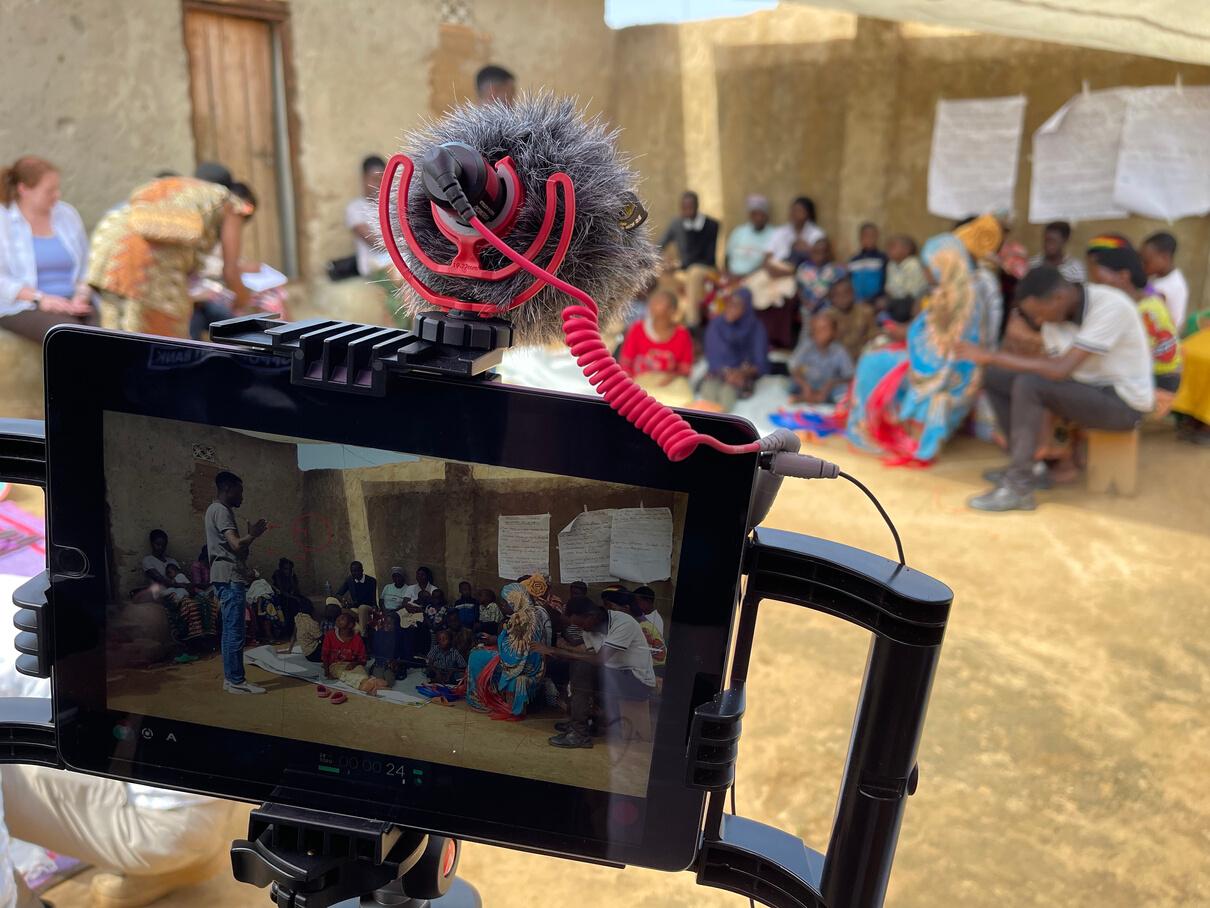
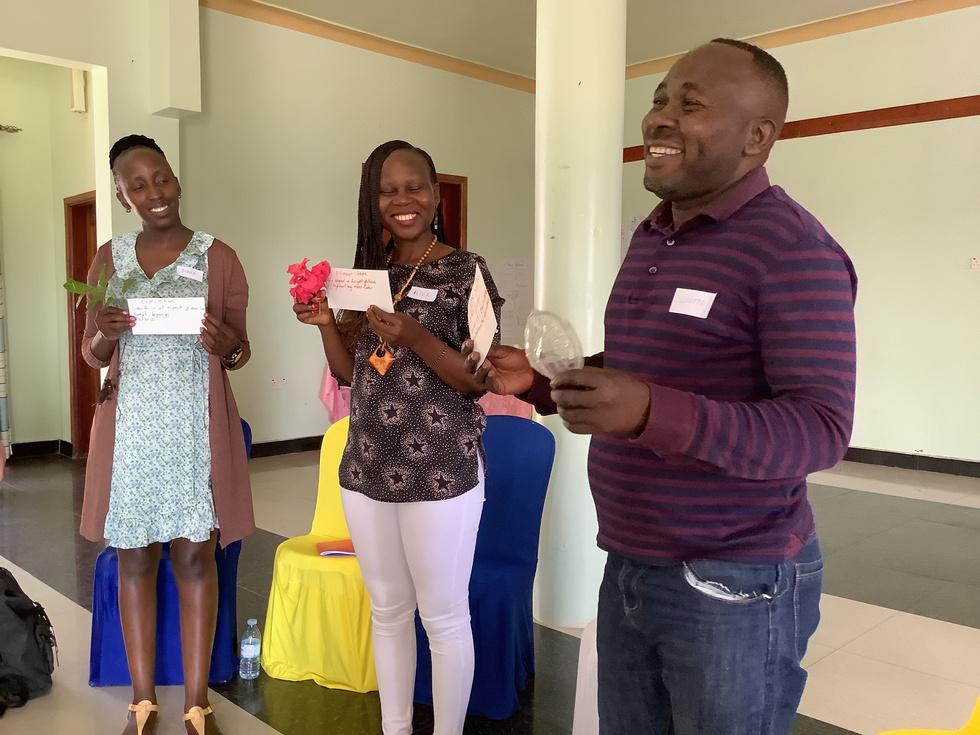
7
Sharing our hopes, fears and expectations - PVMSC training
Filming on location with Wenzetu Group, Nakivale
Training days: pre-fieldwork

The training activities took place in a large training room and in the gardens of the Nim Motel on the outskirts of Mbarare. The aims of the training days were to build the evaluation team through a series of fun activities, which combined developing video skills with participatory action learning (PAL) games and exercises to build trust, develop group identity and reinforce collaboration as our key motivator for learning. The intention of the training and how this would be put into practice in the field was discussed throughout the training days. We explored our hopes, concerns and expectations of the training period and we grounded ourselves through creating a group agreement to guide how we would conduct ourselves in the training and in the field Various technical exercises introduced the trainees to the Filmic Pro App on the iPads, using microphones, monitoring sound, framing and shot types and storyboarding. The ‘tripod game’ race built confidence in assembling and taking down the production equipment. Learning was captured via Visualisation in Participatory Programmes (VIPP) cards Different shapes and colours of cards enabled us to create a ‘learning garden’ on the walls.
The games and exercises designed to develop technical skills and increase confidence put into practice the principle of 'each one teach one', in which participants pass on what they have learned to one another For example, the 'Name Game' introduces how to film and record sound on the iPads by enabling each person in the group to experience filming, monitoring sound and introducing themselves to camera. The clips are then played back to the participants who can then identify good points about their recordings and aspects that need to be improved.
8
Visual training schedule pre-fieldwork
"Each one teach one" - participants instructing each other on using the iPad to film and record sound during the 'Name Game'.


11
Shot types contest - learning basic film-making language
After developing basic Participatory Video skills (PV) the focus shifted to the Most Significant Change evaluation method, how to facilitate people to tell and share their stories and how to develop individual stories as a team. The facilitation techniques were learned experientially, with the evaluation team working through the activities that they themselves would facilitate in the community groups at the Nakivale Refugee Settlement during the fieldwork days.
The method was introduced by first inviting small groups to discuss how they would define the words ‘most’, ‘significant’ and ‘change’. This laid the foundations for creating the MSC question to be used in a story circle, mirroring the process to be used in the field The story circle enables participants to share deep, honest stories from their own lives. The MSC question decided by the group was ‘What was the most significant change in your life since you became involved with Opportunity Bank’.
Story Circle - how it works
Two scribes are appointed to each take a note of every participants’ story Once the question has been introduced to the circle, each person is given the opportunity to share their story of significant change and the person to the teller’s immediate left is asked to be the ‘ears’ for that story After going round the circle for the first time, the ‘ears’ are then invited to retell the story and the scribes can also fill in any details missed Each member of the circle is then invited to state which for them is the story that is most powerful in representing significant change and to state the reason for their choice These are noted on a flipchart as are key words to help create criteria for selection Once everyone has identified their preferred story, the group agrees by voting which story to develop into the group video
Once the story to develop as a video was selected, it was unpacked through working together on the ‘River of Life’ activity, in which the life of the storyteller imagines his or her change journey as a river, with rocks or rapids representing barriers and other images such as an island, or a flower garden representing opportunities or enablers leading to the significant change This is an opportunity to involve the whole group in helping the chosen storyteller to develop his or her story by asking questions, prompting and encouraging the storyteller to provide more detail and drawing on the River, which is represented on a large piece of flip chart paper around which everyone gathers. Once the River is completed, the storyteller has practiced their testimony a number of times and can then go to a quiet location with one or two trusted members of the team to record their story direct to camera
Meanwhile the rest of the group used the River of Life to decide which key scenes they would include in the video to illustrate key moments. From this they created a storyboard to illustrate each of the six scenes which could be dramatisations of key moments, or cutaways to show location or context.
Once the storyteller has recorded his or her testimony, they return to the group and collectively film each scene that has been storyboarded.
12
River of Life at Abamwe Twetungure Group, October 12 2022
After completing the filming, the footage was reviewed by the group and the points at which the illustrative scenes would be inserted into the testimonies were agreed so that the story could be edited and reviewed the following day, the final training day before the fieldwork.
On the final day's training simple editing and subtitling principles were introduced to ensure that editing could commence as soon as the team returned from the field The community screening is an important element of PV MSC, as it helps involve other groups in triangulation and verification of data, making information accessible and encouraging downward accountability. It also provides an opportunity for the groups - trainees and participants - to showcase their work and be proud of their achievements Trainees also capture additional data that feeds into the evaluation
The final hours of the training was spent planning the fieldwork in terms of daily timetable, assigning roles and practicing for the fieldwork days.
Throughout the training period, the concept of free, prior and informed consent had been highlighted as of key importance to the method. It was necessary also for the consent process to be translated into the local languages to ensure that every participant could fully understand what they were consenting to.

13
Free, Prior and Informed Consent
Obtaining consent throughout the PV protects all parties – the participants (team making the video), contributors (people from the local community or decisionmakers who are interviewed or filmed), facilitators, funders and organisers. Everyone involved should understand where, when and why the footage can be used. The three stages of consent are:
1. Consent to participate: Discuss all aspects of filming with each contributor before any filming begins (purpose, background of project, participatory nature, involvement as contributors, plans for dissemination of the footage and video)
2. Consent after filming, including during editing: Reconfirm after filming that each contributor is still willing to take part and give their consent. They may wish to review the footage before giving their consent.
3. Consent to share: Once a rough cut has been produced of a finished video, contributors can view it and decide whether they still wish to be included.
Video recordings of contributors giving consent is a useful alternative to written forms, especially if literacy is a barrier to full understanding of a written consent statement The participant is asked to explain the purpose of the film being created and to state their willingness to take part as well as to confirm with which audiences they want to share the video.
Note: When obtaining consent in monitoring and evaluation contexts, especially in PV MSC, the participants who share their stories in the story circles can opt to remain anonymous, unless they give specific consent for their stories and any other photographs or videos of them, to be used for any other purposes.
An additional opportunity for reflection
During the training days the team created two videos, edited in camera, presenting their own reflections on the baseline workshop and PV process that had taken place in March 2020 These shared by InsightShare with CDAC Network (Communicating with disasteraffected communities) ahead of the annual conference in Genever in October 2022.The trainees talked about the baseline having 'planted a seed in their communities' from which OBUL had been able to provide financial literacy training and access to banking services, including loans, to help refugees establish and grow businesses in Nakivale The baseline PV project enabled OBUL to learn about the group that they are targeting (refugees) and create products that could more appropriately meet their needs.
14
By involving the communities in the baseline we were able to design products that would meet the needs of the host community and the refugee communities, both of whom were facing some similar challenges.

In response to the baseline videos, OBUL set up agents in the host community and hired financial literacy trainers from the host community.
Some of the refugees and some members of the host communities who are entrepreneurs required additional support, so business skills training was introduced as a new element of the programme From the feedback in the videos, it was found that financial literacy training was excluding mostly women because of their busy schedules and other commitments, so OBUL was able to customise the training plan so that everyone could benefit and to create community ownership of the training plan
OBUL has been able to provide loans to refugees to help small businesses to grow as well as teaching how to plan and save and use financial services.
OBUL has opened a bank in the Nakivale settlement to provide easier access to financial services and training
Preparing for baseline reflection video
October 8 2022
"Over the last three years we've been implementing these exciting ideas from the community through the baseline videos that we captured. However we are yet to know whether our programme has really created the impact that we planned to create for the refugee communities. As such we are involving the groups that we are working with in this next round of participatory videos to establish how the programme has impacted them and to make any changes to ensure that everyone benefits."
Noah Ssempijja - OI Refugee Programme Coordinator
15
PV Baseline review video
Fieldwork
During the fieldwork, 81 stories of change were collected through the story circles. Each participant was invited to tell their story in response to the MSC research question: What has been the most significant change in your life since you joined the Opportunity Bank RISE programme?

As each participant shared their story, their immediate neighbour became 'ears', assigned to listening carefully to the story and to re-tell it in the second story circle iteration. The facilitation team also included two scribes who would note down each of the stories. When the 'ears' shared their memory of each story, the scribes would share their notes so that through the re-telling, each participant was satisfied that their stories were told accurately and in the way in which they wanted to tell them
As facilitators guided participants through the process, each were asked to consider which story for them represented the most significant change and to provide a reason. These were captured on a flip chart. It was important to be clear that facilitators were not seeking the 'best', but the story that resonated most with the group in terms of the barriers the individual faced, how they overcame them, what they had achieved and what did they envisage for the future.
Video playlist
Photo Album
7
Outputs
Story Circle - Family Saving Group - October 13 2022
Fieldwork Day One: Wenzetu Group and Abamwe Twetungure Group
Changing my Mindset
by Immaculate Nanziza
Immaculate came from Congo in 2010 with one child and her parents. She subsequently gave birth to two more children, one of whom had a visual impairment, so she felt fearful of mixing with others in the community. Another parent took her to Wenzetu group for counselling and she met other children living with disabilities. The group also gave her money, as she was starving and unable to feed her children.
OBUL ran savings training and Wenzetu teaches income generatinv activities, such as weaving baskets and hand crafts, which they sell to improve the lives of their childrenwith disabilities through providing access to education, as well as assistance with food and basic needs.
The training and joining the Wenzetu group has helped Immaculate to change her mindset and, despite continuing financial hardship and other challenges, she can now feed and educate her children.


Moving Forward
by Byamukama Lozio
Byamukama left Ngungamu to come to Kaswina. He started working doing people's gardens and got married, however people were not paying him for his work.
A local man mobilised his community to start a group and they accessed training on financial literacy and how to access loans from Opportunity Bank. With a loan of Two million UGX he started trading and was able to take his children to school. He paid off the interest slowly and then used interest he had gained on saving to buy a plot of land.
He went back to OBUL and requested another loan, this time of five million UGX. He and his family no longer have to work for food - they grow their own and he works for other things, such as the children's schooling.
He wishes for the training and loans to extend further into the community and promotes the benefit of providing loans to women, like his wife, who runs her own retail business.
He is requesting lower interest rates from the bank and has ideas for futher enterprises providing watering services within his community.
16
The filmed stories
Fieldwork Day Two: Family Saving and Kazi ni Kazi
Helping my Fellow Women
by Irene Ndusi
Irene is a mother of five, a widow since her husband died in Congo, from where she fled in 2020 The impact of Covid made survival even more difficult for her and her family, with small donations of maize, oil and beans from the World Food Programme, but it was not enough to sustain them Irene is a tailor, but with no money, how was she to buy a sewing machine to start sewing for a living She worked for a while from other people's tailoring shops, then her neighbour told her about Family Saving Group With savings she managed to buy a sewing machine and started sewing and training other women
Many women want to learn to sew, such as widows and teen mothers who had no help She also helped orphans, training them in how to sew She returned to the group and started to save more money After training from OBUL in saving and managing loans she bought another new sewing machine and continued to train people and to sew She has also bought three ducks and hens and will use the sale of chicks to pay school fees for the children. She wants to expand to open a tailoring centre as there is much demand for training.
How our Lives Moved on
by Petronia Mukamana
Petronia arrived in Nakivale in 2015 with her four children The journey was long and arduous and she arrived at the settlement with nothing to eat, hungry and sick A 'good samaritan' took her to the host communities to work for food She got too bunches of matoke but even carrying them home was hard because she was weak from hunger

She met some people who were learning how to save After working again and gaining two bunches of matoke, she sold one and ate the other, enabling her to save 1,000 UGX in the saving group She put aside the remaining 5,000 UGX to cover other items and hospital and school fees
After training in how to access and manage loans from OBUL, she secured a loan for 250,000 UGX with which she bought a plot of land and grew crops
Despite being affected by drought, she will go back to OBUL to access additional funds to invest in her business so that she can build a house She could not have done any of this without the training provided by OBUL.

17
Fieldwork Day Three: Umoja ni Nguvu Wakulima and Pamoja Tunaweza
How to Survive
by Specioza Mukandekezi
Specioza came to Nakivale in the year 2000 with two children. After four years she decided she should marry and she found a man and started taking care of the children together. Her husband was a loving man, but he died and Specioza became mentally unwell, which culminated in a week in prison for her. Upon her release she sold items left to her by her late husband but struggled to find food and survive. She was encouraged by her neighbours to join a group and started to learn about farming, irrigating crops and harvesting. She began to farm and harvested good yields.
Unbeknownst to her, she had high blood pressure and spent a week in hospital. Upon leaving she sold her produce and used the money to buy an animal. The group helped her to learn how to survive.
Francis is a refugee from the Democratic Republic of Congo and reached Kampala as an urban refugee but the challenges of finding money for rent and food for his wife and child were such that he requested a transfer to Nakivale Upon arrival he was supported by a well-wisher with somewhere to sleep A friend lent him 20,000 UGX and he started a shoe selling business which unfortunately failed owing to the Covid break out
He went to a friend for advice and he suggested that they form a group so that they could join together and pool resources Mobilising more people, this was the birth of the Pamoja Tunaweza group, where they saved and borrowed money amongst themselves

They requested OBUL to provide training for the group in financial literacy He sees the group as a means to getting to know people from other nationalities - Rwandese, Congolese, Burundians - and construct a spirit of brotherhood With the training and access to financial services, Francis aims to set up a piggery farming project

18
Brotherhood Spirit by Francis Manomi
Community Screening

The community screening took place on Wednesday 19th October in a large venue near to OBUL within the Nakivale Refugee Settlement. The evaluation team had prepared meticulously, taking account of how to deal with generating discussions with many different language groups. On the day of the screening it was raining hard, which makes it challenging to travel anywhere. In addition, the tin roof of the venue accentuated the noise of the rain, however a powerful sound system for the screenings and use of a PA for announcements and speeches overcame this
Despite the weather, over 150 people attended the screening and the videos were well received. The trainees then organised this enormous audience into discussion groups based on language and divided themselves to lead the groups accordingly. The groups were asked to comment on the videos and discuss which of the significant changes presented resonated most with them, and why
During the discussion, refreshments were also provided and enthusiastically received. The venue was buzzing with lively debate and the trainees captured the outcomes of the discussions on flip chart paper After around 25 minutes of discussion, each group had elected a spokesperson to feedback to the wider group, with the trainees providing translation.
The feedback from the groups was typed up by the trainees who facilitated the discussions and shared with the wider team to be incorporated into the data for the midline evaluation.
Thank you to the programme manager and programme coordinator and all staff members and facilitators for the great work done and an active participation We count on your continuous support and safe journeys to you all.
Spokesperson from the community at the end of the community screening.
This practical screening guide from InsightShare has more details and tips on how to organise and facilitate an impactful and fun screening: InsightShare Screening Guide (click on image to download)
19
Capturing the outcomes of discussion, October 19 2022

Feeding back to the wider group, October 19 2022

20
Participatory Analysis
The participatory analysis of all stories of change collected was carried out by the local evaluation team prior to the community screening. Scribed stories were considered alongside the filmed stories and the reasons that were given in the story circles for selection as well as personal reflections filmed during the post-production days with each trainee The discussions at the community screening, captured on flip charts, then translated and shared with the wider team were incorporated into the analysis by InsightShare for this report.
Overview and rationale for the participatory analysis process, October 18 2022

21
Clustering and analysing the data
The evaluation team was asked to identify the main changes identified in the stories as well as the key enabling factors and blockers or barriers mentioned. They represented barriers/blockers in red, enablers in yellow and changes in green. Having analysed the video and scribed stories, the trainees organised the cards and incorporated an extra category called "Future aspirations"that were captured using blue cards

orting exercise, October 18 2022
The trainees used coloured cards to find commonalities and sub groups, using a method called 'pile sorting' to begin to cluster the data. They gave titles to each sub group of blockers, enablers and changes as they arranged the data on the wall, grouping the cards beneath them.
The trainees then started extracting the information from the data clusters to discuss the nature of barriers, enablers and changes and the relationship between them They could then discuss the contribution that the enablers had to support participants overcome barriers, making visible the contribution of the programme intervention as well as other factors.
Once the team had clustered the data, they created a video report to complement the visual representation of the analysis on the wall and their verbal analysis is included in the themes that emerged, presented below.

23
Participatory analysis in action - October 18 2022
Grouping cards into similar topics and developing themes within the four categories of barriers, enablers, changes and future aspirations/dreams.


Developing themes and re-grouping cards to form data clusters

24
Presenting analysis to camera
Barriers
The impact of refugee status in the living conditions and broader wellbeing and ability to become economically independent were clearly reflected during story circles, stories of change captured on video and community screening discussions. The trainees that were refugees themselves also reflected on the data based on their personal experiences.
Isolation
Many participants looked back on their arrival in Uganda and expressed the difficulties in moving forward because of lack of friends, family or community. All of the stories recorded and many that came through the story circles mentioned how hard life was when they first arrived in a strange country with no connections or community support.
Poverty and hunger
Many stories shared in the story circles talked about the extreme hunger faced by refugees when they newly arrived to Uganda and to the Nakivale Settlement, with insufficient funds for food even through the provision of the World Food Programme, exacerbated by what they described as a high cost of living
Discrimination
Many participants spoke about the stigma attached to their refugee status and experiencing discrimination from the wider community, leading to a loss of self-confidence and fear for their safety
Access to education
Lack of access to education was discussed in most groups from two perspectives, one being the lack of suitable provision and the second and more prevalent was the inability to pay school fees Without the ablity to send children to school, there is little hope of advancement for future generations Wenzetu is a successful initiative providing schooling for children with disabilities, however its resources do not stretch far enough
Health issues
The health facilities in the settlement are poor and medical consultations and medication are expensive Participants mentioned common health conditions such as high blood pressure and mental health problems that they attibute to stressful and uncertain living conditions
Disability Dependency syndrome
Disability in addition to the challenges of being a refugee was also cited as a barrier to acquiring employment or establishing and maintaining enterprises
Some participants spoke about insufficient support, for example of land provided by the government and resources provided by UN agencies. The lack of access to finance and training also perpetuates dependency on humanitarian aid.
Unforeseen circumstances
Participants described how the fragility of their living situations made them even more vulnerable to dealing with unforeseen circumstances, as they had no back-up, financially or otherwise. They identified death of a partner (particularly husbands - women identified this as a greater issue), single parenthood, failure of business, drought affecting crops, unexpected ill health and of course, the impact of Covid-19 was amplified in these circumstances.
25
Unemployment
Many stories shared in the story circles described the lack of employment opportunities and the long distances travelled in order to find work, often unsuccessfully. Those who did find work reported frequently that they were not paid for their labours.
Lack of financial literacy
Before receiving training in financial literacy, participants described misusing the little money that they had, especially in terms of saving culture, and some spoke about their businesses collapsing because of lack of understanding of finances. Others identified poor future planning because of lack of skills
Fear of taking out loans
Some groups lacked trust in financial institutions, fearing their ability to pay back loans and worrying that their property would be confiscated if they were unable to pay back their instalments.
Difficulties in accessing loans
Access to financial support to enable refugees to begin a business, or grow a business was identified as a barrier across all of the groups. Despite the presence of the new branch of OBUL in Nakivale, and the financial literacy training, some people spoke about not having the necessary requirements made by the bank to acquire loans, such as lack of collateral.
Difficulties in managing loans
Another frequent theme was the level of interest rate being too high for refugees starting with little to manage Within this were sub-themes around the amount of loan made available often being less than requested and therefore insufficient to make a real difference to their businesses.
"Refugees face a life with no security and their circumstances often lead to health problems such as high blood pressure and mental health challenges. They need affordable hospitals that can treat them well."
Aqrchet Diana Salume, OBUL Project Supervisor, Kampala
"Many people in Nakivale only focus on cash for food provided by the World Food Programme and this reduces self-sustainability and the impetus to progress forward."
Diana Kakwezi, OBUL Financial Literacy and Busines Skills trainer, Nakivale
26
Enablers
Enablers were identified in the story circles and can be clearly seen articulated in the video stories Enablers are factors that contributed to improving the general well-being and living conditions of refugees as well as specifically interventions that focused directly on economic barriers to a better life, and better standard of living.
Community/group Support
Clearly seen within the video stories and resonating throughout the story circles was the importance of engaging with the community and garnering support. This was often catalysed by individual well-wishers with empathy for the circumstances of newly arrived refugees. Sensitisation towards refugees' difficult situations by the community helped with acceptance; information about existing services was passed on to new arrivals Upon joining groups, assistance even with basic needs such as food and clothing, or a place to sleep by group members demonstrated the benefits of combating isolation by joining a group. Empathic group members provided emotional support and comfort to those in distress. There were some accounts of friends within the community providing financial support or loans to help new arrivals get themselves established
Encouragement of peers and community motivators to join the savings groups
Participants described the impact of community members encouraging the formation of saving groups, or of people to join existing saving groups. Through collective saving of small amounts, some return on even tiny investments could bear fruit Witnessing the success of others in the group became a motivator.
Counselling
The availablity of counselling through informal means (e g friends and well-wishers within the community) and through counselling services was cited as an important enabler, to provide guidance and develop confidence and courage, especially for new refugees arriving at the settlement, or for those who are undergoing difficulties such as mental health problems or family issues.
Training in income generating activities
The skills and professions that refugees held in their homeland are often not transferable to their new situations within the refugee settlements, so many of the participants spoke about the importance of learning about potential income generating activities and new skills, such as agriculture/farming, handcraft skills and tailoring. In the case of tailoring, the storyteller was able to use her pre-existing skills and train others in the community also.
27
Provision of financial training, business education and access to finance
A theme running consistently through the stories was the importance of the training in savings, financial literacy and business planning in terms of understanding how to start with even only tiny amounts of cash resource, multiplier effects of mobilising groups to work together, how to plan and how to spend sensibly and strategically.
Introduction of Financial Services in the community via OBUL
The introduction of the OBUL bank branch has provided a visible and approachable presence in the Nakivale community, removing barriers to financial services through physical access and through the mobilisation, advice and training available. Employing and promoting members of the local community also removes barriers of lack of trust in financial institutions and makes the institution more accessible.
"Most refugees don't have access to loans. To change this they formed small groups to save together as refugees and then when OBUL came to the settlement and opened a branch, they were already sensitised and organised, ready to benefit from accessing financial services, opening accounts and receiving small loans."
Mazza
Dolib, OBUL intern, Kampala
"People come together from different countries, form groups in order to train, to give ideas to each other. With a facilitator from OBUL they gain skills and can start saving even with very little. From these skills they can go on to apply for loans to create or enlarge businesses to support their families By grouping together they can overcome the challenges from where they came from. They give counselling to one another."
Simon Kibwila Kimuke, OBUL Financial Inclusion Officer, Nakivale
28
Changes
Changes to the living standards of refugees as well as to their well-being were recounted through the story circles, and especially through the participatory video stories that had been voted as those that demonstrated the 'most significant change'.
Increased confidence and self-esteem
As a result of the formation or joining of groups, counselling and training in income generation skills and financial management skills, participants spoke of them gaining in confidence and self esteem, feeling able to speak in public and to begin enterprises or seek work One video storyteller summed up this as feeling the 'brotherhood spirit'
Improved standard of living
Having been empowered to begin saving and in many cases start their own businesses, all of the participants in the story circles reported that they were now able to feed their children and most of them could now afford school fees for them. Some had been able to build their own houses and buy household items and equipment for their businesses. Many spoke of the transition from having to work simply to put food on the table, to being able to sustain themselves from their own enterprises and produce from their own plots of land
Business growth
The video stories in particular demonstrated that once participants had received training and had access to financial services, they had been able to grow their businesses, or diversify their income streams to have more than one source of income. The importance of empowering women in accessing loans and financial services was also seen as key to improving the position of the whole family, in that they too could run their own income generating enterprises, bringing increased income to the family
Creating employment opportunities
One participant described how the ability to invest in additional sewing machines not only increased her capacity as a business to generate more tailoring opportunities, but also to gain income through training others and then provide employment for them
Increasing food security
Some participants benefitted from training in agricultural practices and through sharing plots of land or being able to buy their own plots were able to move from working solely to gain food, to being able to provide food for their families through their own farming endeavours, thereby decreasing dependency and becoming more self-reliant.
29
Hope for a better future
Many participants described their arrival at Nakivale in terms of the enormous barriers they faced, which seemed at the time insurmountable. The enabling interventions had shifted their mindsets to a point at which hope was again possible and a future was worth imagining
"The three days were a success for us - we have managed to capture the challenges, enablers and changes. People are now having access to financial services - they can open accounts, they can save and they can get loans and from those we have seen people creating jobs They have now their own businesses and have started working."
 Nelly Kamikazi, OBUL Financial Inclusion Officer, Nakivale
Nelly Kamikazi, OBUL Financial Inclusion Officer, Nakivale
Most of them have created jobs after accessing financial services - they have also grown their businesses. Most are selling, employing other workers and improving their standard of living. They take their children to school, pay rent and this has also benefitted their self-esteem. They can now stand in public, they can get married, they can stand confidently to teach each other and teach others
Confiance Ishimwe, OBUL Financial Inclusion Officer, Nakivale
30
Abamwe Tentungure group proudly shows and shares their produce, October 12 2022
Dreams/ aspirations
During the story circles and the recording of the six participatory video stories, trainees were struck by the forward visioning of the participants, so added the category 'dreams/aspirations' to the participatory analysis, as it demonstrates that the interventions of the programme do not end with the changes that have already taken shape up to the midline evaluation point, but project into the future. These dreams set some additional milestones from which to measure distance travelled on the journey to independence and self-reliance at the end point evaluation. Perhaps more importantly they show the greatest journey of all that could continue after the end of the programme, and that is having the tools, confidence and support to aim high and speak out.
Continued support and guidance from financial services
In order to create sustainable futures and improve living standards for refugee families, participants want access to more trainings and access to loans to enable existing entities to expand and/or diversify their businesses/income sources and to ensure that those in the community who have not yet benefitted from the programme interventions to date have access, with the additional support of those who have already benefitted The participants identified women in particular as a focus for more interventions.
Developing support and guidance in identifying and pursuing new income generating activities
Building on the examples presented in the videos whereby groups such as Wentezu have enabled skills sharing in craft making activities, or Pamoja and Abamwe have focused on agricultural skills development and skill sharing, participants felt that training or guidance in identifying new ways of generating income to help diversify their businesses, or start new enterprises would help to create more diversity in business ventures thereby avoiding saturating the market with too many businesses offering the same products or services as well as being beneficial to the community in terms of adding to the choice of goods and services available locally.
Continuous business growth
Continuous business growth came through the story circles and through the examples of future aspirations in the video stories, as well as in the community screening discussions. To enable this, participants identified improving access to loans, by making larger loans available to refugees, with easier repayment options and lower interest rates
Investment in the next generations
Whilst the interventions to date have enabled many families to send their children to school and generally improve their standard of living, participants identified the need to create the circumstances in which children would be supported in gaining their education, whatever the circumstances of the parents or their businesses.
31
Recommendations by the local evaluation team
The following recommendations have been generated by the local evaluation team as they concluded their participatory analysis of all of the data and created their video report and from the discussions at the community screening The animated and lively groups at the community screening conducted their discussions in their mother tongue and captured their key observations via a flip chart and through presenting back to the wider group at the event. Trainees translated these and sent through their notes following the final event to be incorporated into this report
Most significant changes
The programme has brought a better life to the population of Nakivale. Through financial literacy, the programme has given people skills and knowledge on how to manage their small incomes and has taught them how to save and where to save their money. It has also built their confidence to apply for loans and the capability to pay them back.
The RISE programme and OBUL have united people - they work together and trust one another. People now save enough for food and to start small businesses. They can feed their children. They have gained self-reliance, they understand personal money management and they have lost their fears of working with financial institutions. The programme has reduced poverty within the population by helping people understand how properly to use money It has given hope of having better lives and confidence to start businesses.
"We have peace because poverty has been reduced. We use and share knowledge to do our activities - we work together in groups."
Community discussion, Group One, October 19 2022
32
Recommendations/areas for improvement
Refugees need start-up capital to enable them to start running their businesses, such as investing in cattle, buying raw materials for craft businesses, purchasing sewing machines.
They need more training in vocational skills.
They need training and guidance on how to operate within the current challenges of crisis in the host country.
They need continuation of the programme, especially financial literacy and business skills training.
There needs to be some improvement on the terms of loans. Loans need to be longer-term, not just two or three months.
Access to loans needs to be made even clearer, for instance re-examining the processing timeline, charges and terms and conditions.
OBUL should investigate how it can serve even those who do not have collateral.
Loan interest needs to be reduced in order to enable more people to be able to apply for them.
Loan amounts need to be increased in order to enable people not only to expand their businesses but also to pay school fees for their children. Medical support should also be included.
Loan recovery should be less harsh.
There should be a reward for any member who has got a loan two or three times and successfully paid it off on time.
33
Recommendations by InsightShare
Assessing the outcomes of the midline evaluation from the feedback and video reflections from the local evaluation team, the debrief with the project manager and the quality of the story data produced we recommend the following:
1.
Opportunity International UK could consider providing a PV kit to trainees. They have indicated that they wish to continue to develop their skills and use the method in other projects This could also be shared with other OBUL staff members who have gained skills through other projects, such as the Financial Inclusion for persons with disabilities project that has recently concluded.
2. Opportunity International should share the learning (videos, report, photos) with stakeholders in the Nakivale settlement, including the clusters OI UK participates in, UNHCR and other agencies to maximise the use of the learning in the short and medium term as well as encouraging further support from donors.
3 Opportunity International could consider publishing a blog with the results InsightShare would be happy to support wider dissemination of results. InsightShare is a member of CDAC Network and would be very happy to co-author a blog with OI UK to wider disseminate results in the humanitarian sector to showcase good practice in communication with communities and accountability to affected populations

34
Kazi ni Kazi review the video clips they filmed, October 13 2022
Feedback from the trainees
People giving their experiences show how they can start from zero and reach their goals, not losing their morale I will use this experience capturing people's stories to help people develop their skills. Even those who have lost their morale can, through sharing stories gain back their morale and achieve their targets.
Diana Kakwezi
I'm technology oriented, I like new tech., so I appreciate how we can do things in the field, collecting data from different communities. I liked the way we could capture stories, I liked the teamwork, the planningthe programme was really complex but we managed in just over a week! By changing people's lives you also change yours.
Felix Nzikobanyanka
Before the programme came, others were in darkness, but now everyone is shining because training them how to save is important to their lives. With the training showing you how to save, how to boost your life, stepping up with what you have and become more than you are even expecting is amazing I' d known through them giving their stories what they are facing, what challenges they have, what has changed their lives and what they are planning for the future.
Naomi Musiande
The programme was so fantastic and very helpful. I liked learning how to film and how to work with people in the field. Through different stories we learned, especially through the River of Life, how to give a picture of a story
Simon Kibwila Kimuke
Reaching the field, we took the methodology and it was amazing because we got even more information than we had wanted, but we were offered it because people liked the way we engaged them in the activity. I really learned how a person can really share their voice to be heard outside by way of video and I want to use it in the future where I see a barrier where our voices or the voices of the community need to be heard
Confiance Ishimwe
35
The most interesting part is the story circle in the field. We were able to relate with our different group members and see the joy of them giving us the results when we were listening to the most significant change stories It's the best way to show what people are going through, or where they come from, what they plan to do and how they want it to be done because it's people-based, and that is a very unique feature of this InsightShare method.
Aqrchet
Diana Salume
This experience has been nice, learning how to get the community to tell their stories, how to use the gadgets, how to edit the stories into movies and how to analyse them We're starting a new project in Rwamwanja (?) next year so I hope we can use the skills and knowledge for this, and for the baseline of a new project we're implementing in Nakivale.
Noah Ssemijja
It was an amazing period I learned how to film with an iPad and I was very happy to meet different people and make new friends. I want to use the knowledge in my community to improve and get good feedback.
Nelly Kamikaze
I loved the participatory nature of the training - not picking out a client or customer trying to understand, but going into the communities and getting them to share their stories and they select the stories to record themselves I want to use the technique to capture stories to understand better what is the impact of our programmes on communities and how to get feedback on how we can improve our services to meet their needs better.
Alice
Norah Lajwa
Learning all the new techniques on how to work with the community in a settlement - these were new skills for me and I want to use them in my future career, to use video as being the voice of the community.
Mazza Dolib
36
SOURCES
Asadullah, S and Muniz, S (2015) Participatory Video and The Most Significant Change A guide for facilitators InsightShare, Oxford, UK Retrieved from: http://insightshare.org/resources/ participatory-video-and-the-most-significantchange/
Benest, G. (2010). A Rights-Based Approach to Participatory Video: toolkit. Oxford: InsightShare/UNDP
Davies, R., Dart, J. (2005) ‘The ‘Most Significant Change’ (MSC) Technique: A Guide to Its Use’, MandE, Melbourne, Australia
Guijt, I. (1999) Participatory monitoring and evaluation for natural resource management and research. Socio-economic Methodologies for Natural Resources Research Chatham, UK: Natural Resources Institute
Milne E, Mitchell C & de Lange N (eds.) (2012) The Handbook of Participatory Video. Lanham MD, USA: AltaMira Press
Most common countries of origin of refugees in Uganda as of 2022: Statistica, last accessed at www.statistica.com/statistics/1241293/refugees-in-uganda-byorigin
Multidimensional Poverty Index Report 2022 - Uganda - Uganda Bureau of Statistics (UBOS) in partnership with OPHI and th eUnited Nations Development Programme (UNDP). last accessed January 2023 at: https://ophi.org.uk/mpi-report-2022uganda/#: :text=About%2027%25%20of%20the%20population,by%20the%20li ving%20standards%20dimension.
Participatory Video Baseline, Refugees: Innovation, Self-reliance & Empowerment (RISE) Programme Report: Sabine Hellmann and Soledad Muñiz (2020)
Participatory Video and Most Significant Change - Midline and Endline Evaluations: Mainstreaming Disability Inclusion in the Ugandan Financial Services Sector: Tricia Jenkins and Soledad Muñiz, (April 2022 and October 2022)
Project summary document: Sally Vicaria, International Programmes Director, OI: Mainstreaming Disability Inclusion in the Ugandan Financial Sector
37
Appendix One: Participants in the field (excluding the PV MSC video storytellers)


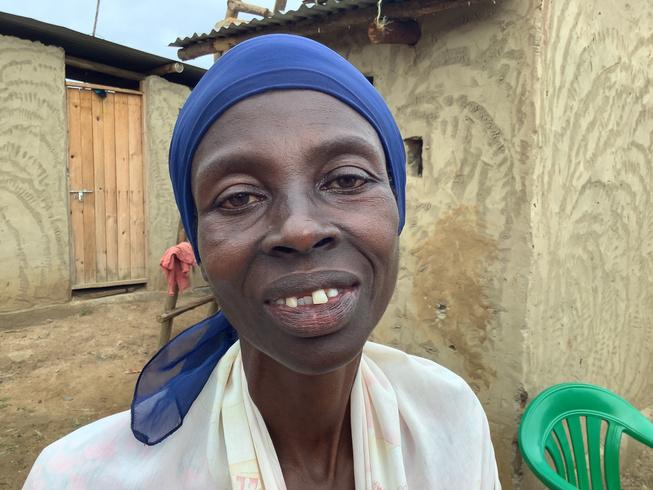

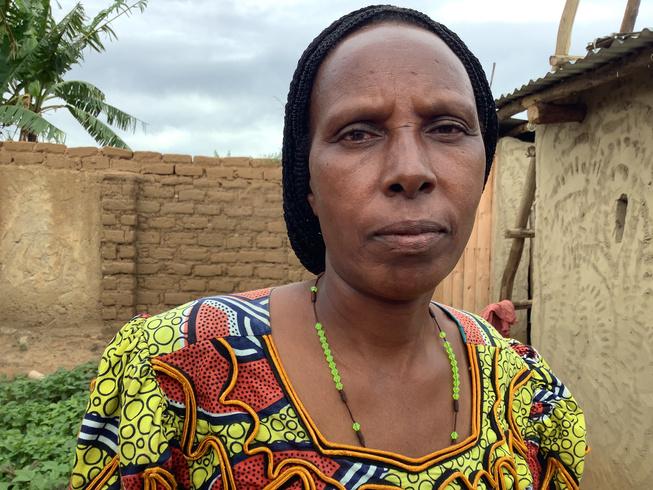
Day One - Wenzetu
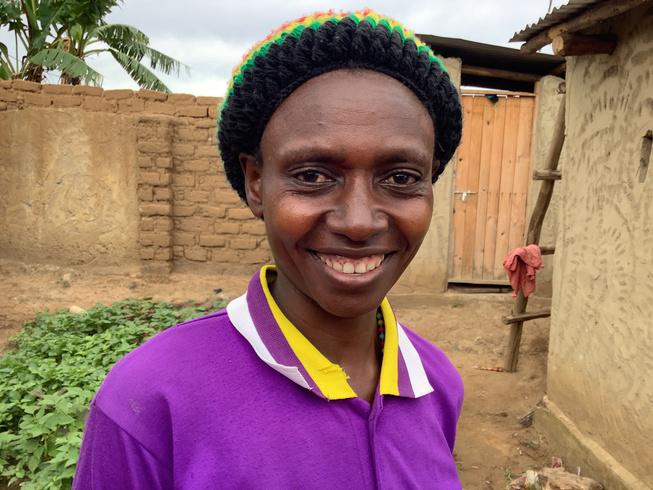 Aniciata Asiya
Franco
Jose
Musonera
Aniciata Asiya
Franco
Jose
Musonera
38
Partricia



39
Petronela Saidat
Day One - Abamwe Tentungure
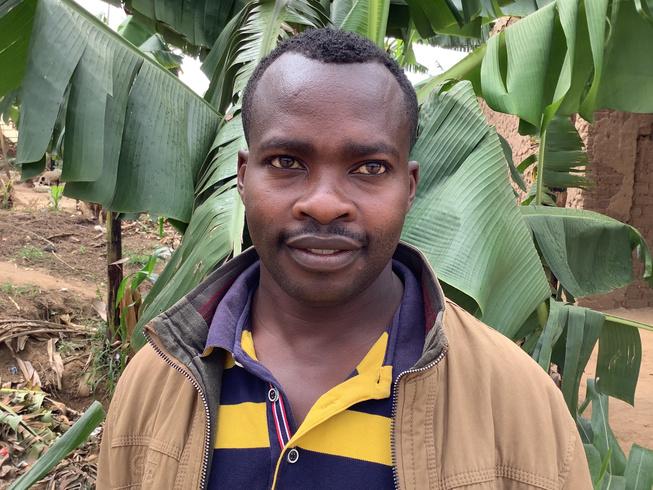
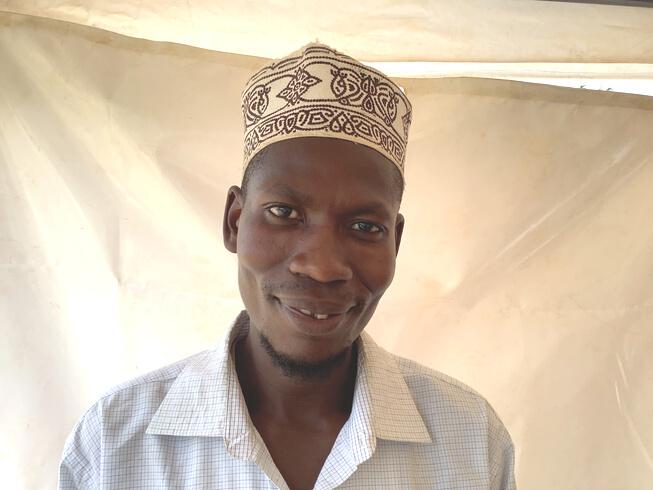

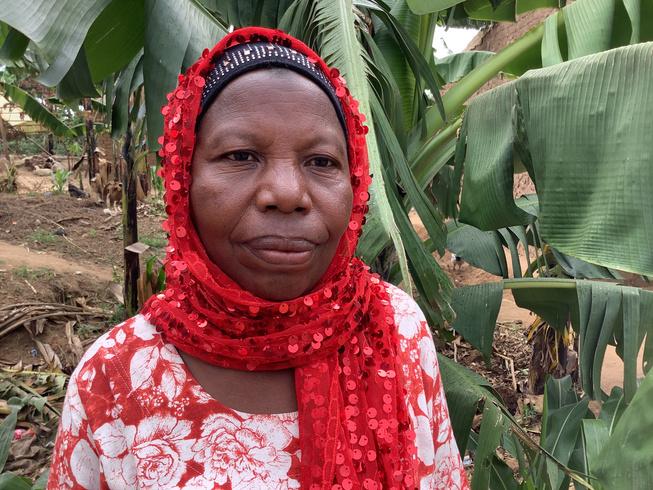
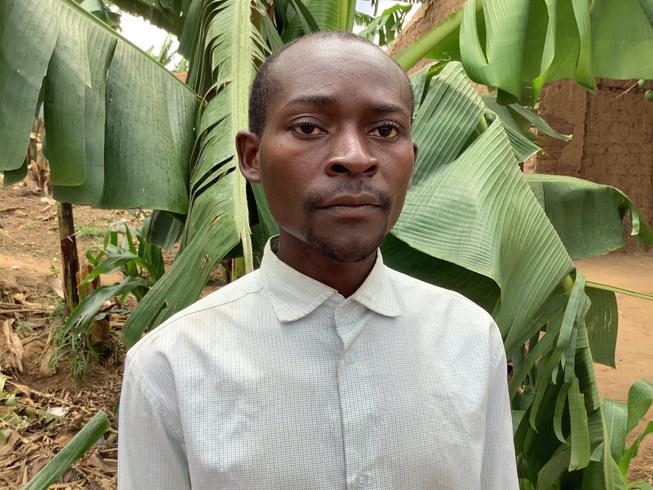
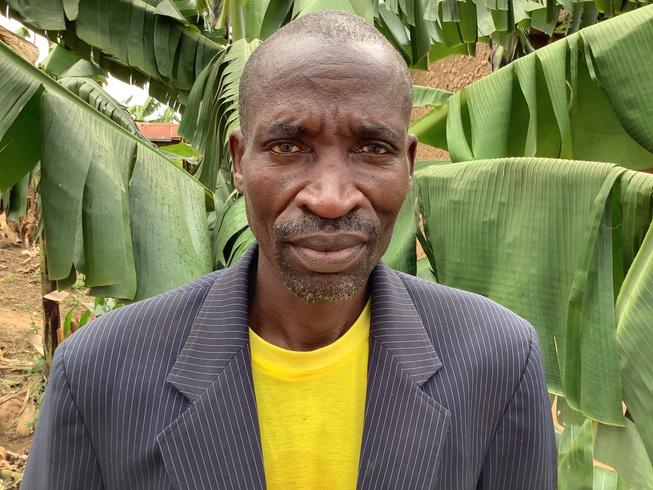 Chairman
Edson
Fatuma
Jonathan
Juma
Chairman
Edson
Fatuma
Jonathan
Juma
40
Lozio
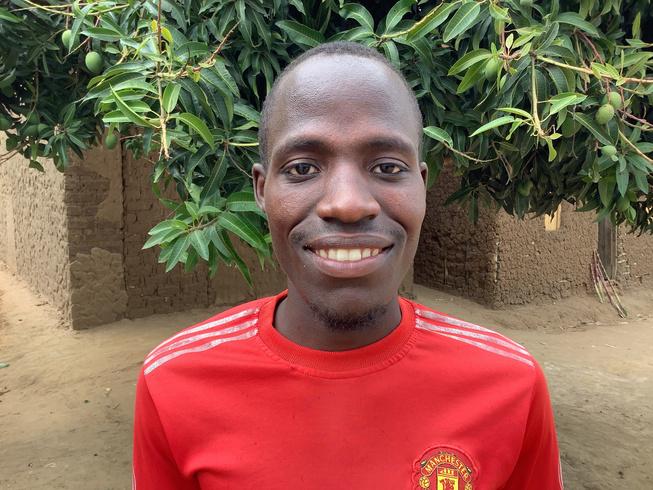

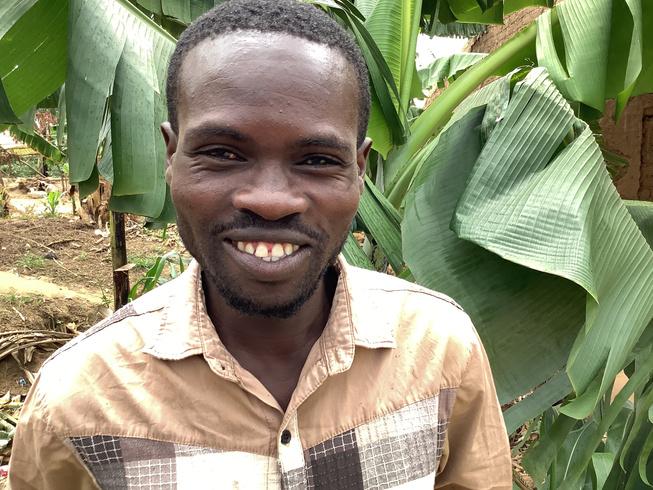

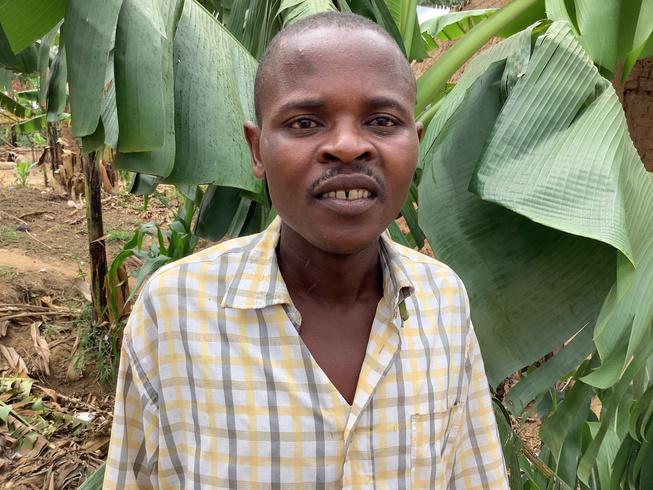
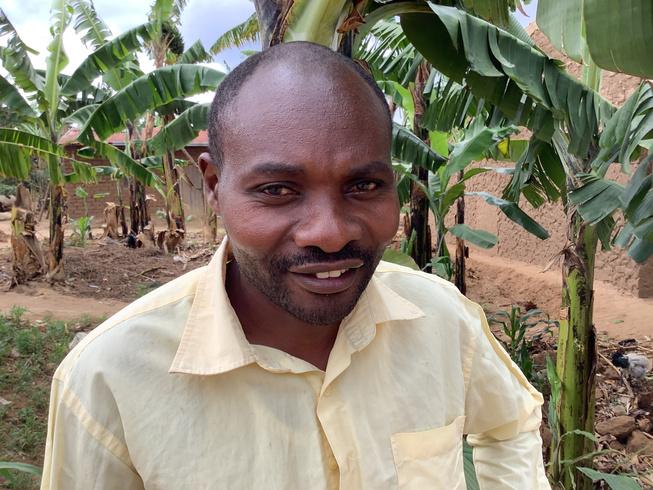 Mwesigwa Nociata
Robert Sharon
Tayebwa
Mwesigwa Nociata
Robert Sharon
Tayebwa
41
Wilber
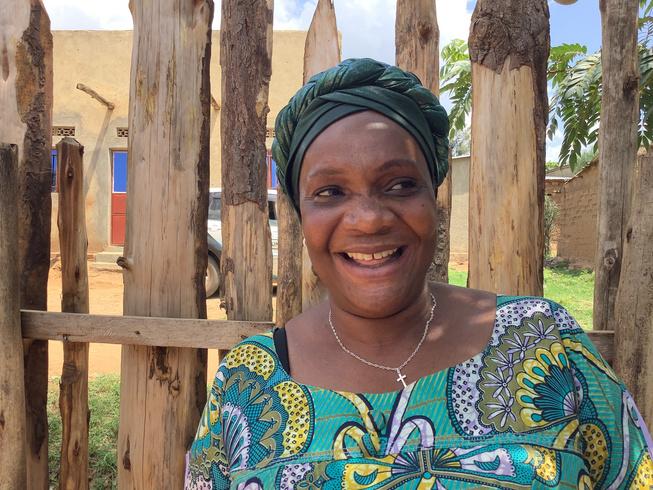
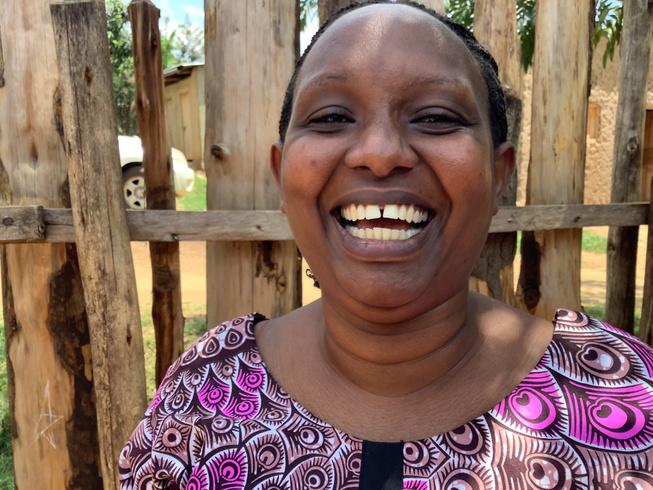
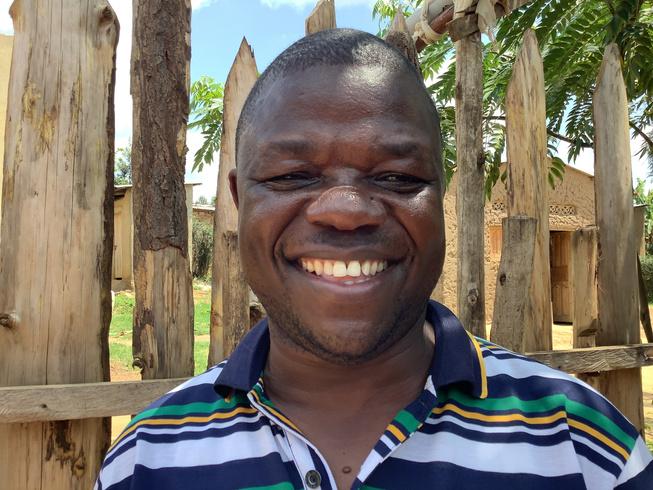
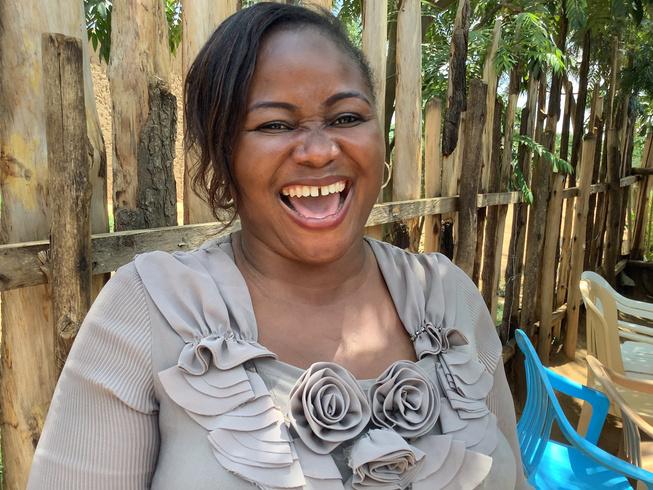
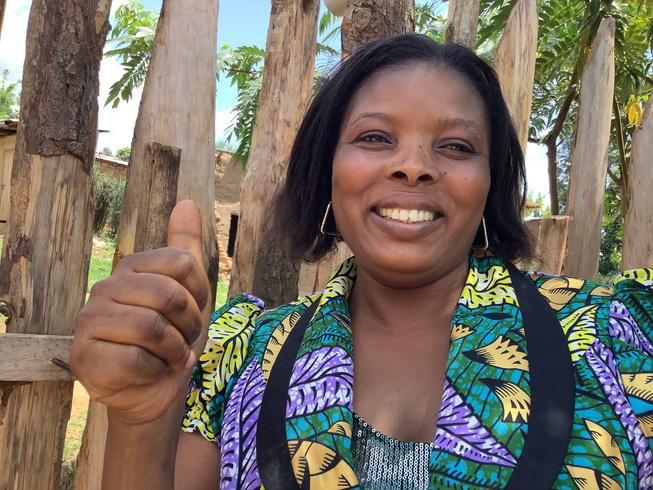
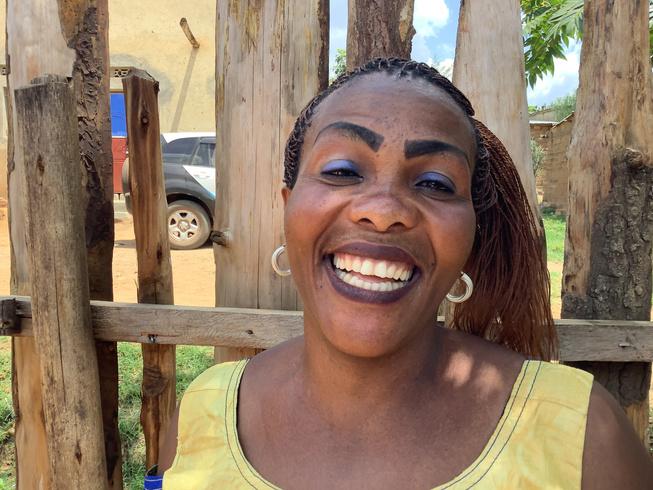
Day Two - Family Saving
Furah Kadiange
Oliver
Safi Sifa 42
Ombeni Rosette


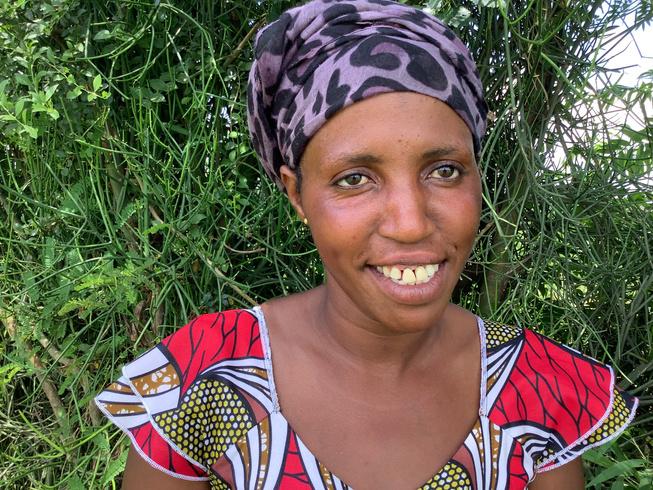
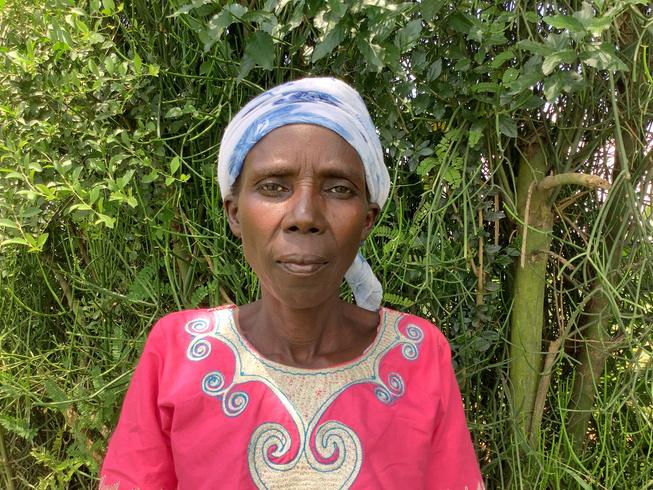
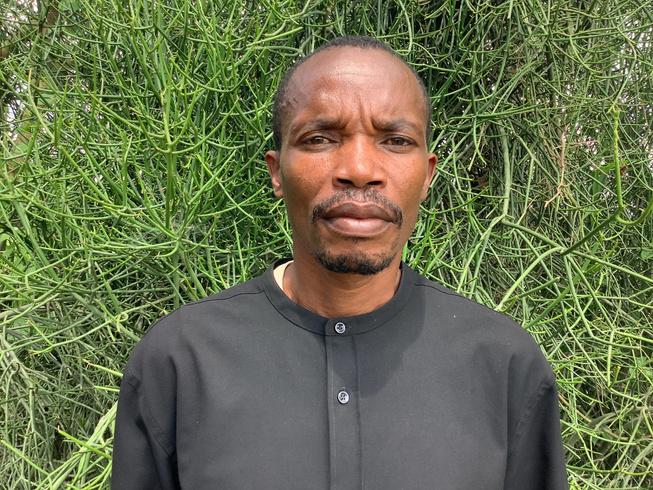 Sonny
Day Two - Kazi ni Kazi
Alivera
Sonny
Day Two - Kazi ni Kazi
Alivera
Concesa Emmanual 43
Beatrice
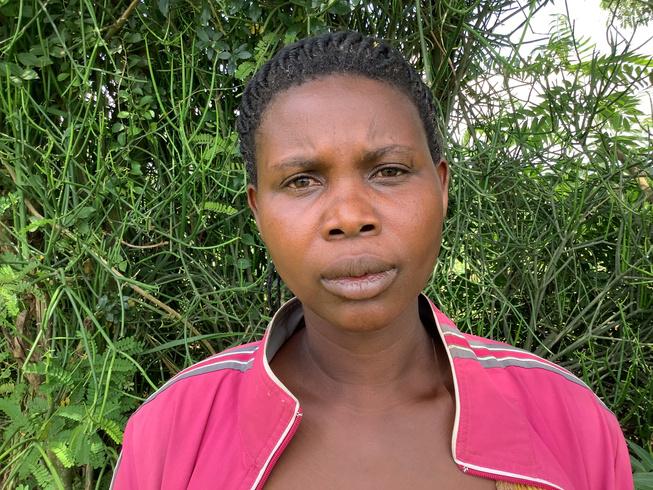
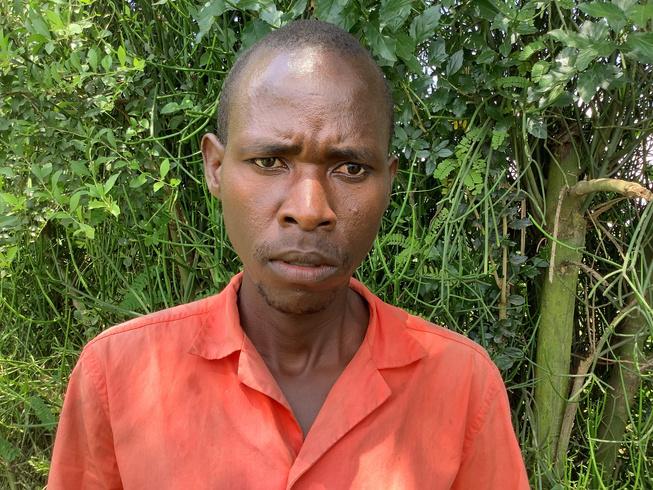
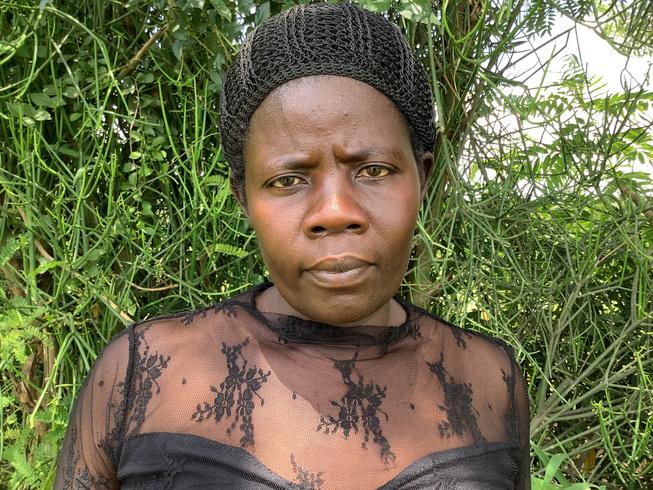
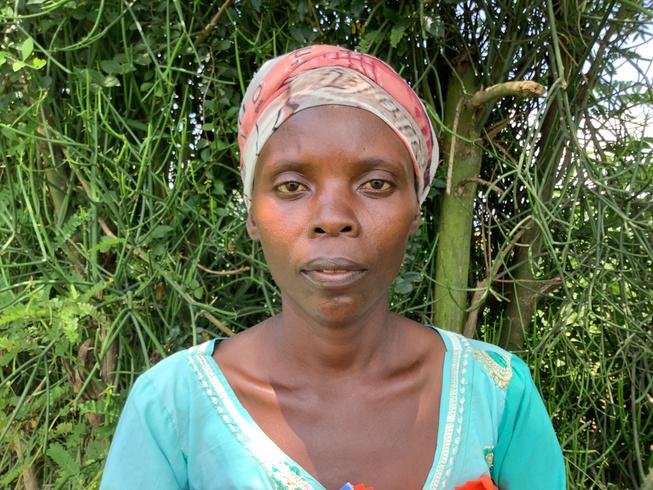
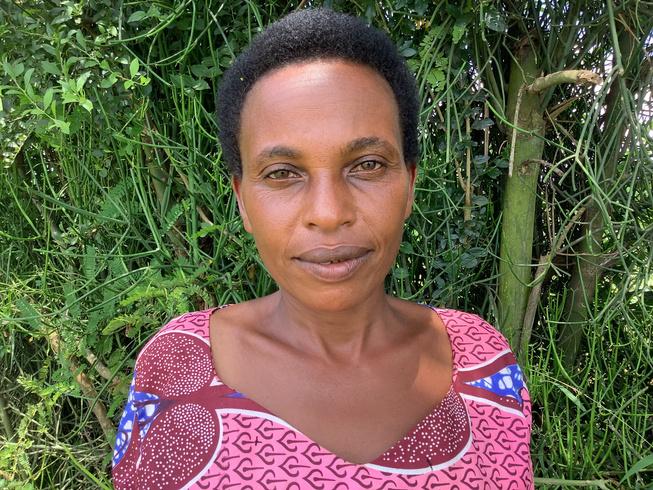
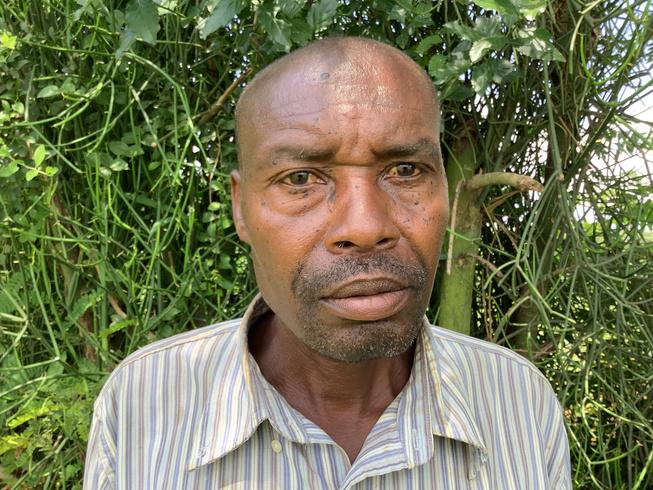 Jakline John
Languida
Jakline John
Languida
44
Pricilla Ramdan
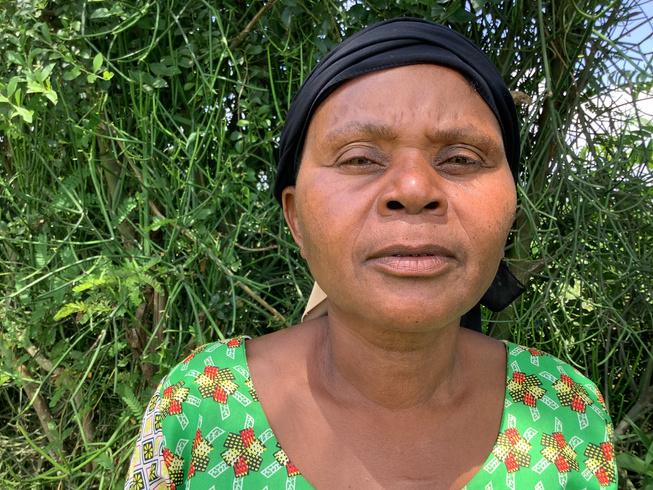
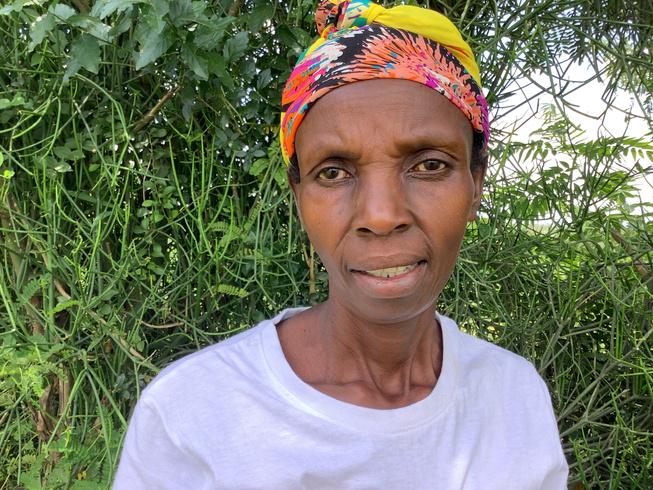
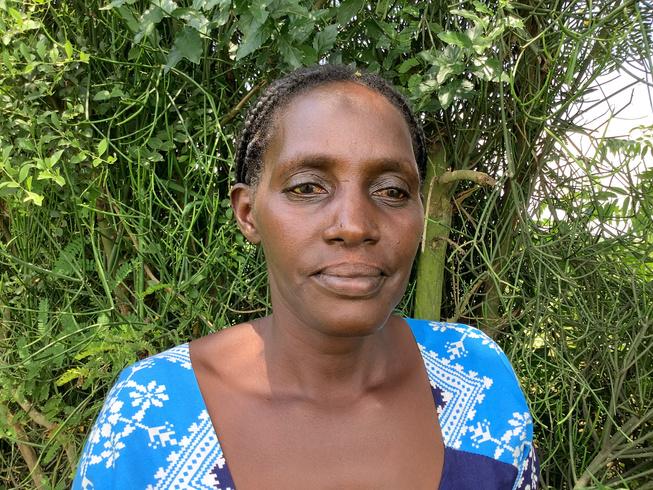
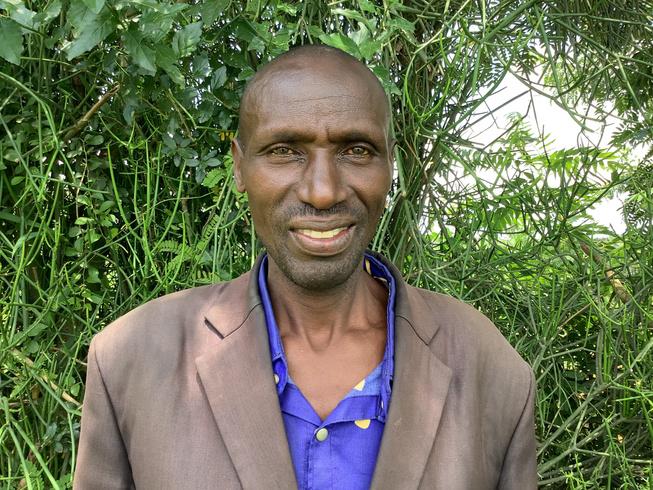 Rebecca Siteria
Rebecca Siteria
45
Sumia Vianne
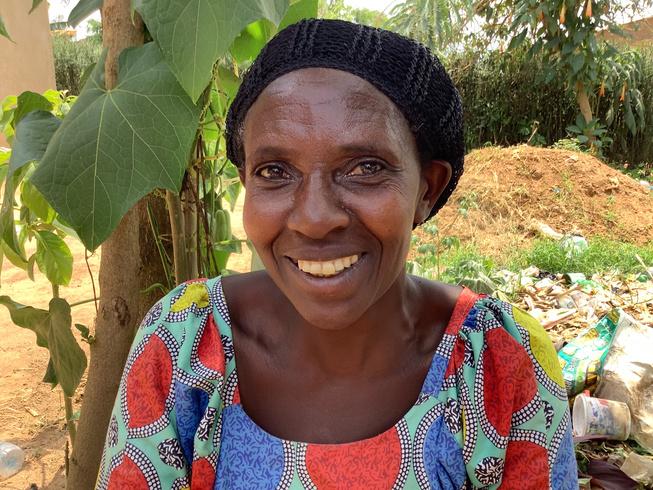
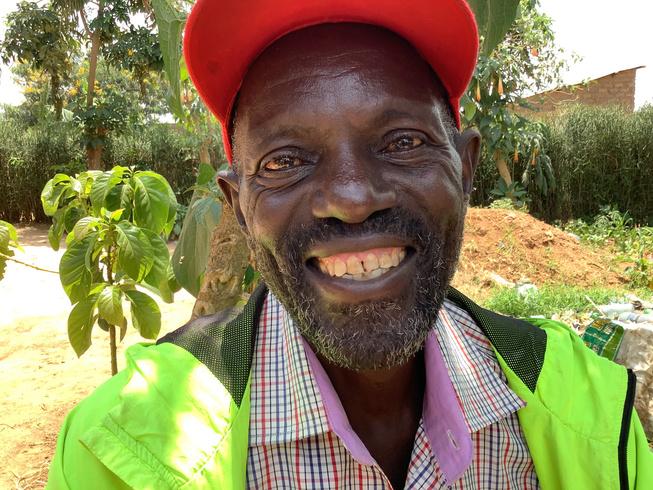
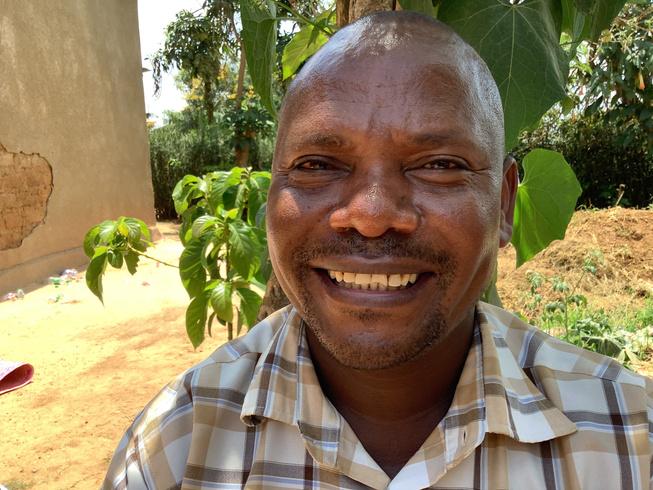
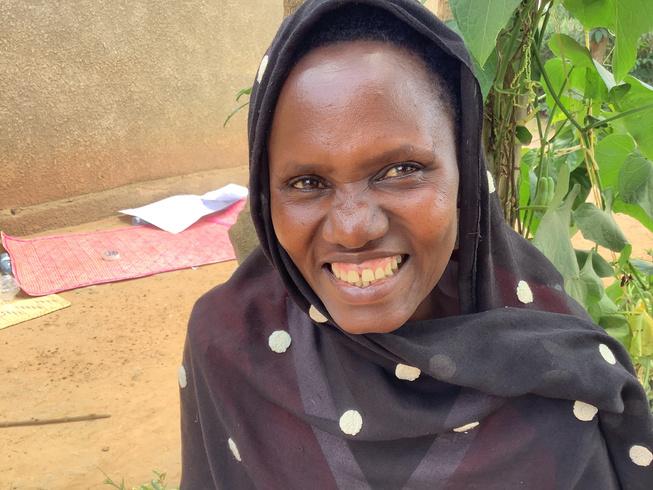
 Day Three - Umoja ni Nguvu Wakulima
Beatrice
Charles
Nzabonimana
Pricilla
Day Three - Umoja ni Nguvu Wakulima
Beatrice
Charles
Nzabonimana
Pricilla
46
Teojen
Day Three - Pamoja Tunaweza
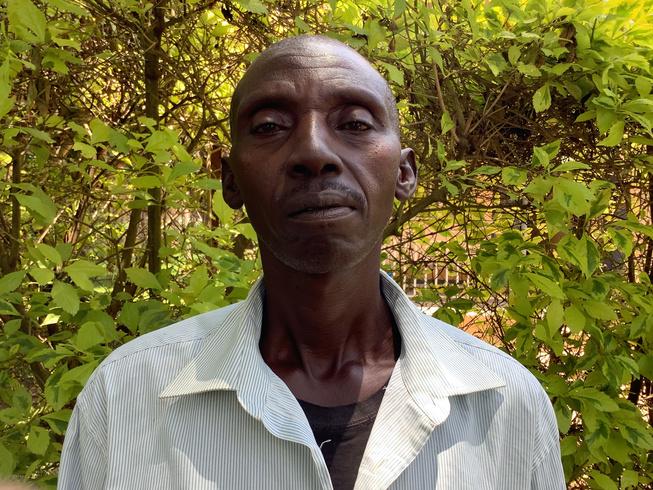


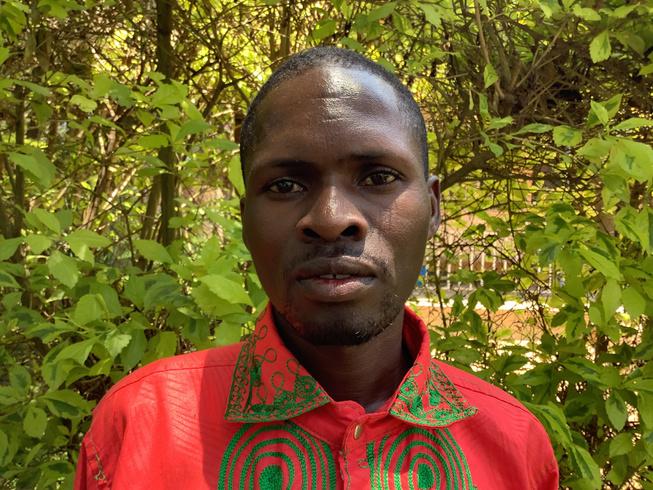

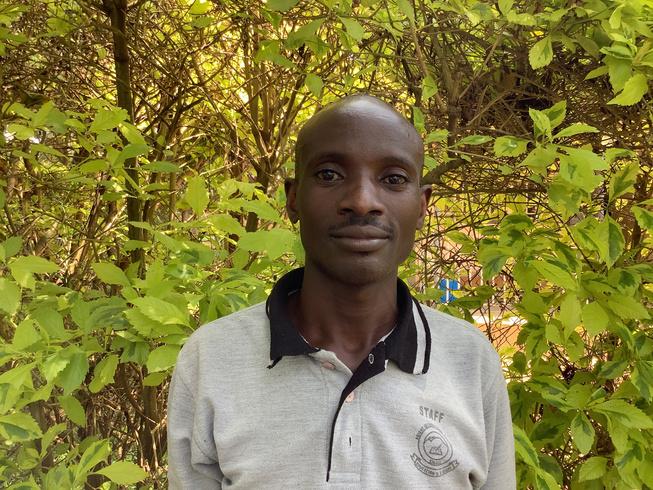 Atuhire Bahati
Byamukama Fazirah
Atuhire Bahati
Byamukama Fazirah
47
Franices Guma
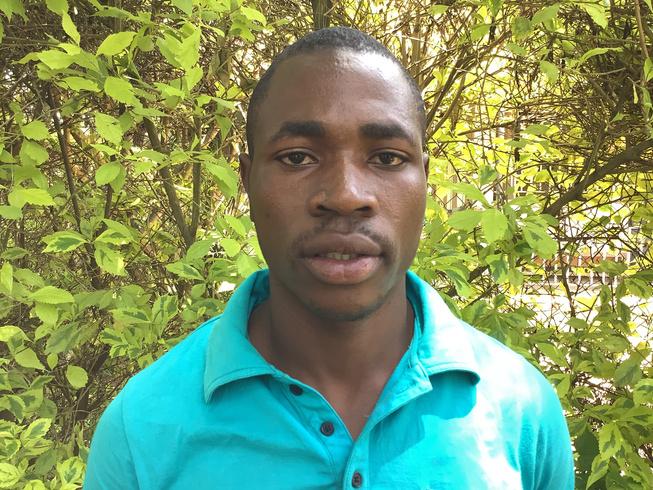
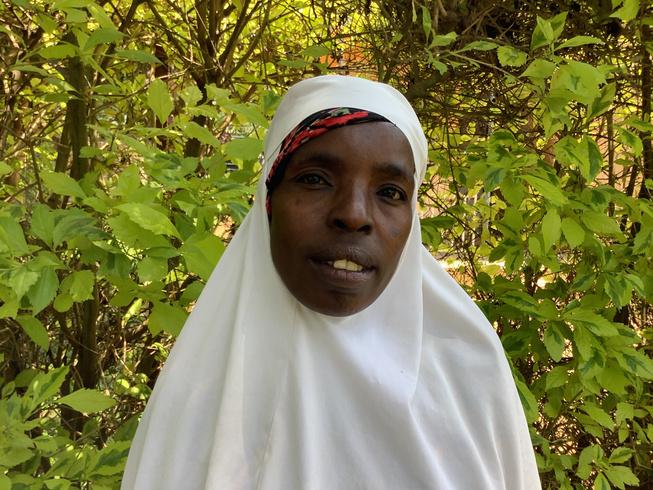
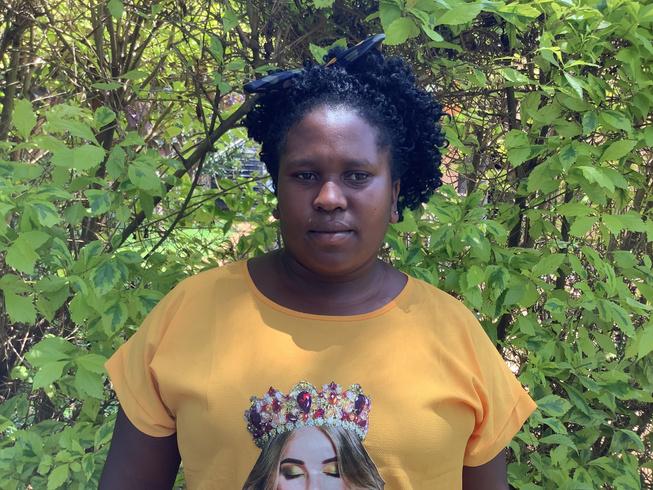
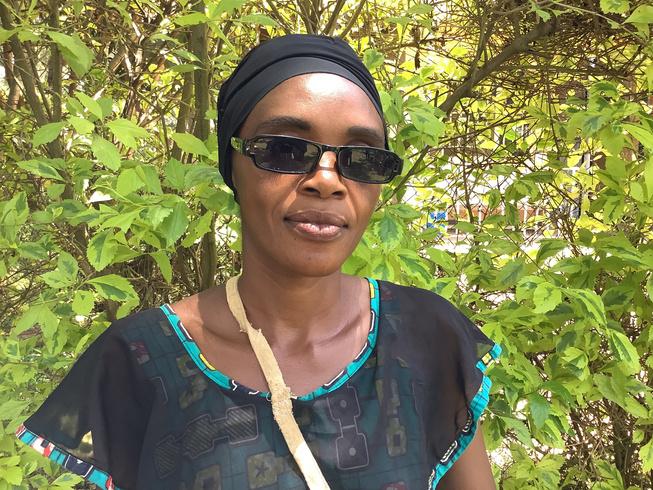
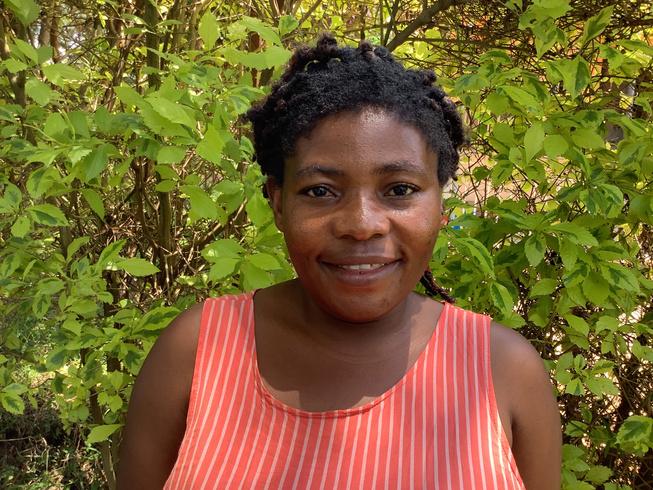 Jonathan
Marie
Sandra Shukira
Jonathan
Marie
Sandra Shukira
40
Skukuru


































 Nelly Kamikazi, OBUL Financial Inclusion Officer, Nakivale
Nelly Kamikazi, OBUL Financial Inclusion Officer, Nakivale






 Aniciata Asiya
Franco
Jose
Musonera
Aniciata Asiya
Franco
Jose
Musonera








 Chairman
Edson
Fatuma
Jonathan
Juma
Chairman
Edson
Fatuma
Jonathan
Juma





 Mwesigwa Nociata
Robert Sharon
Tayebwa
Mwesigwa Nociata
Robert Sharon
Tayebwa










 Sonny
Day Two - Kazi ni Kazi
Alivera
Sonny
Day Two - Kazi ni Kazi
Alivera





 Jakline John
Languida
Jakline John
Languida



 Rebecca Siteria
Rebecca Siteria




 Day Three - Umoja ni Nguvu Wakulima
Beatrice
Charles
Nzabonimana
Pricilla
Day Three - Umoja ni Nguvu Wakulima
Beatrice
Charles
Nzabonimana
Pricilla





 Atuhire Bahati
Byamukama Fazirah
Atuhire Bahati
Byamukama Fazirah




 Jonathan
Marie
Sandra Shukira
Jonathan
Marie
Sandra Shukira
